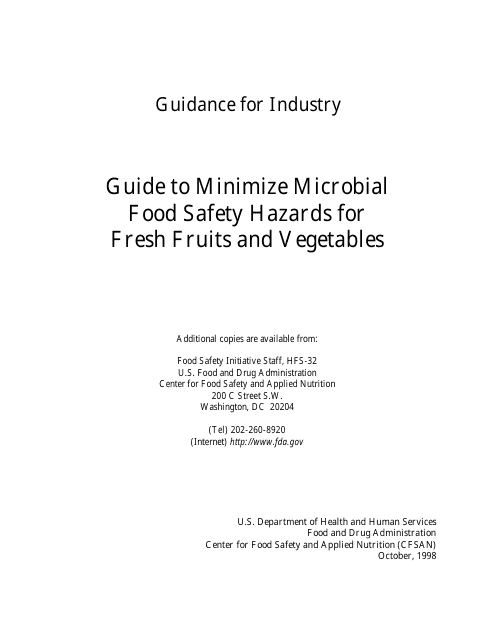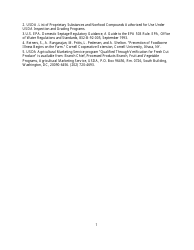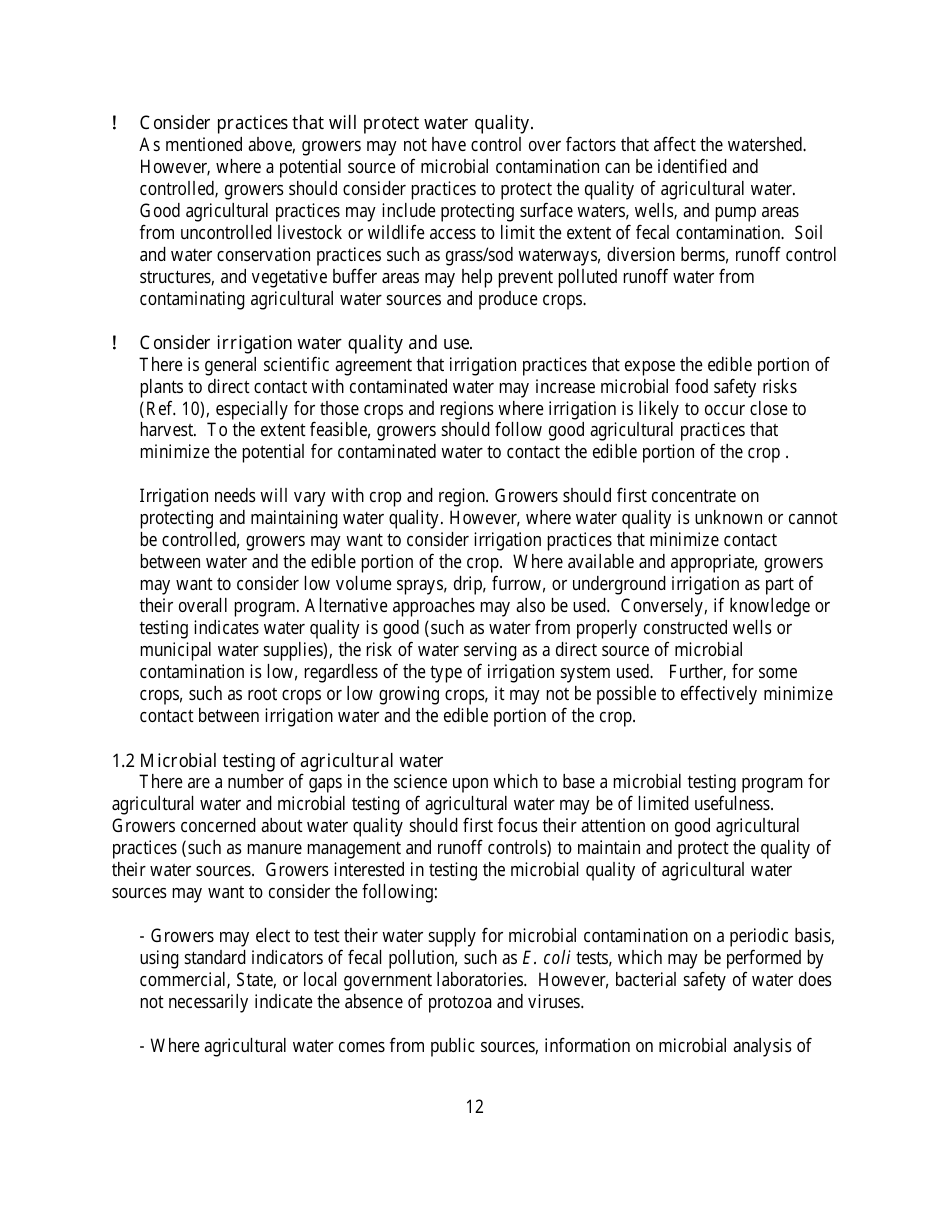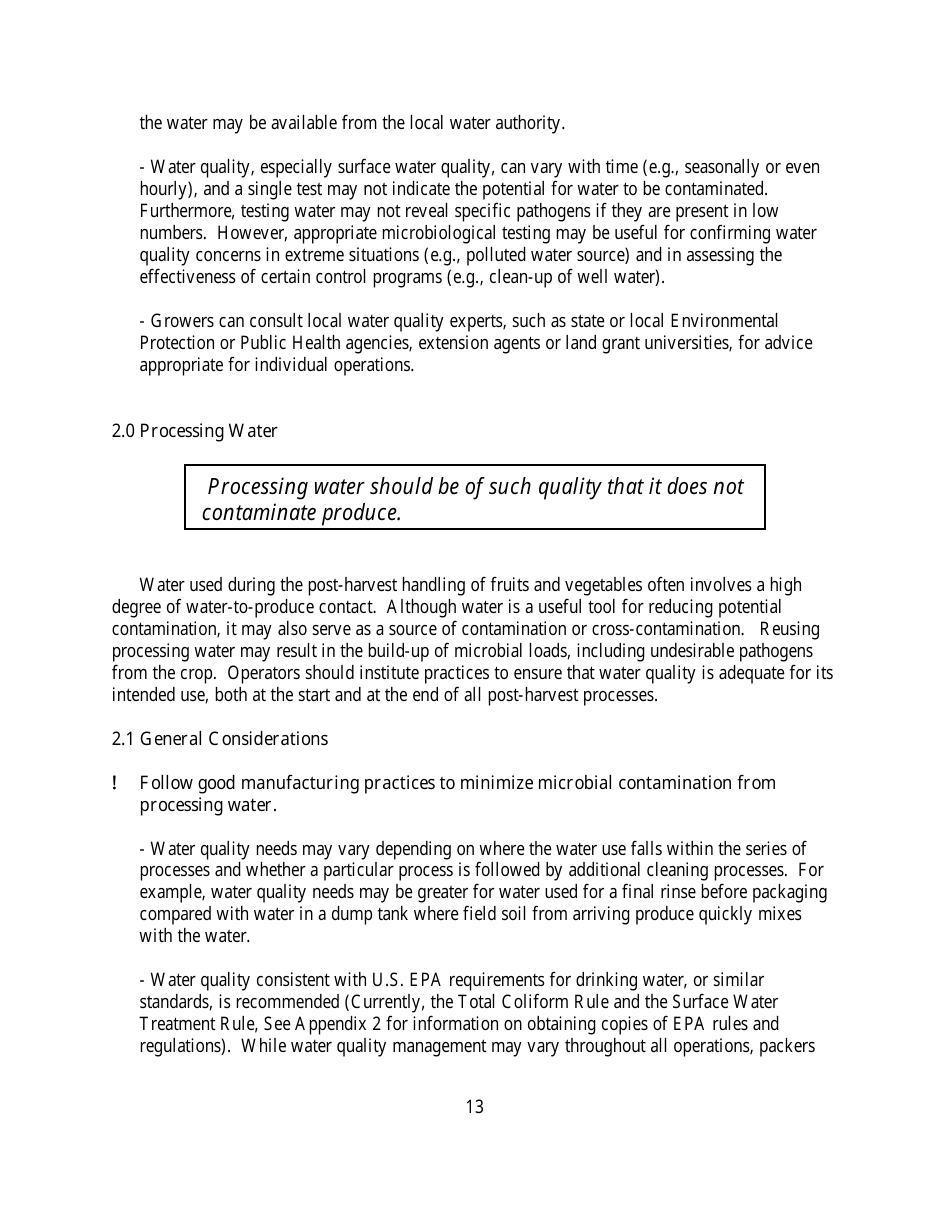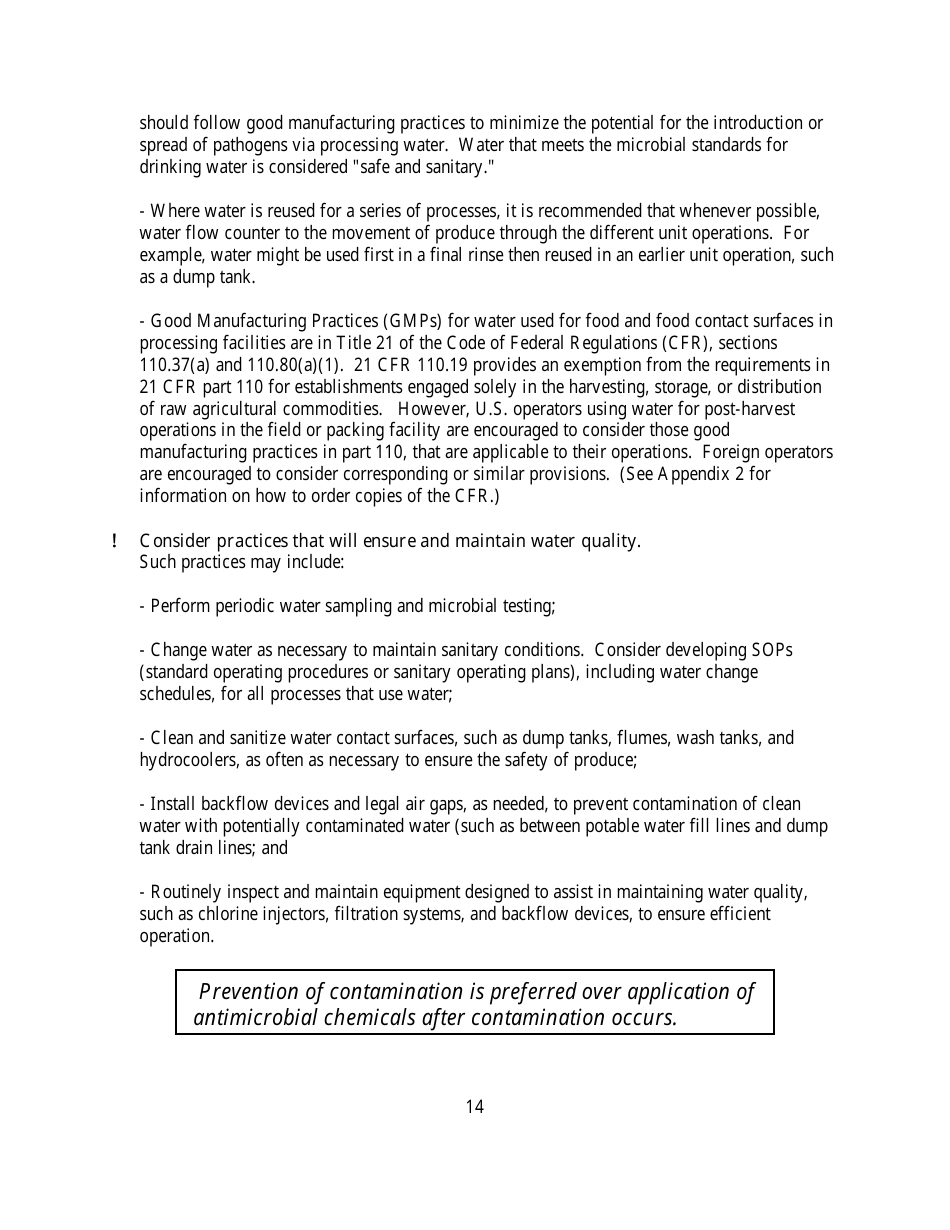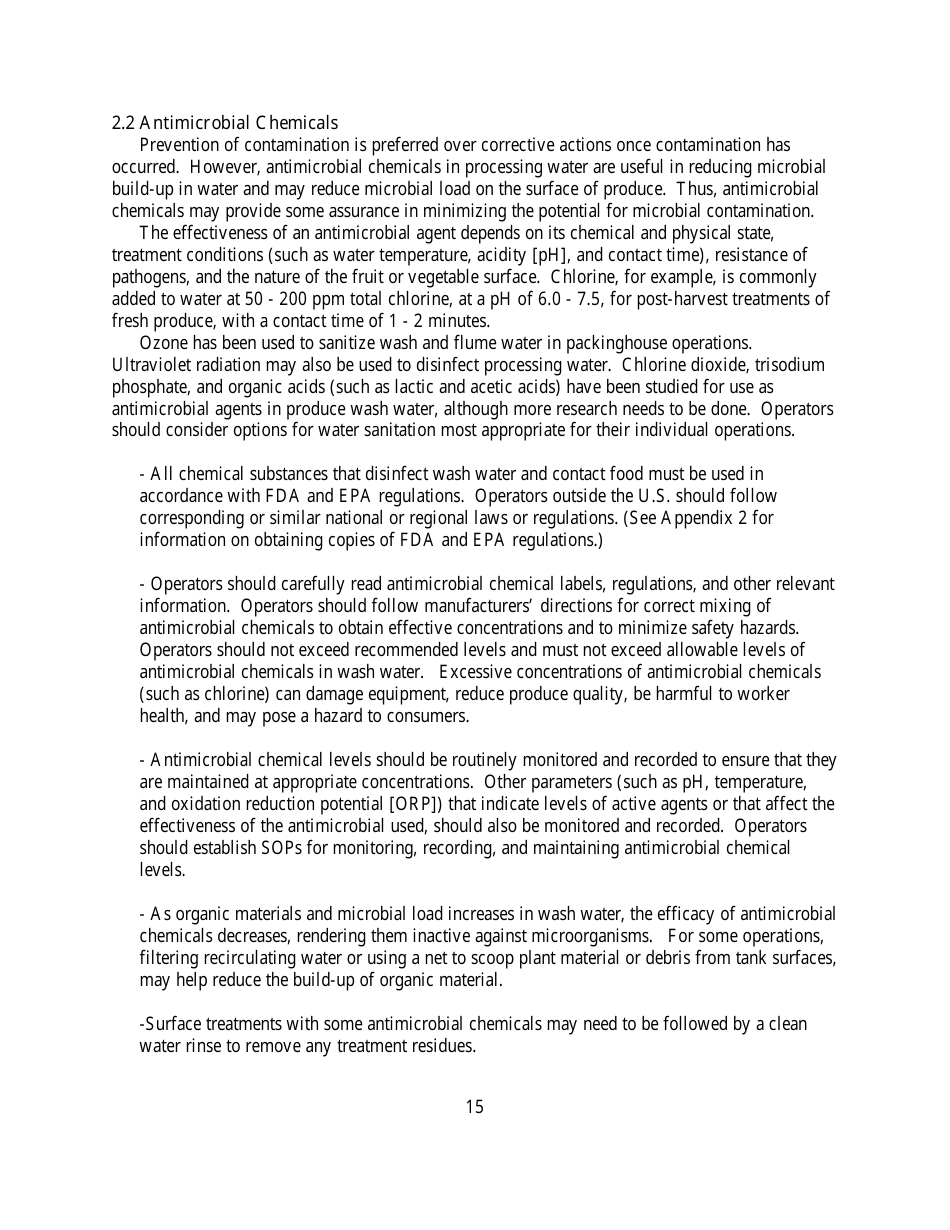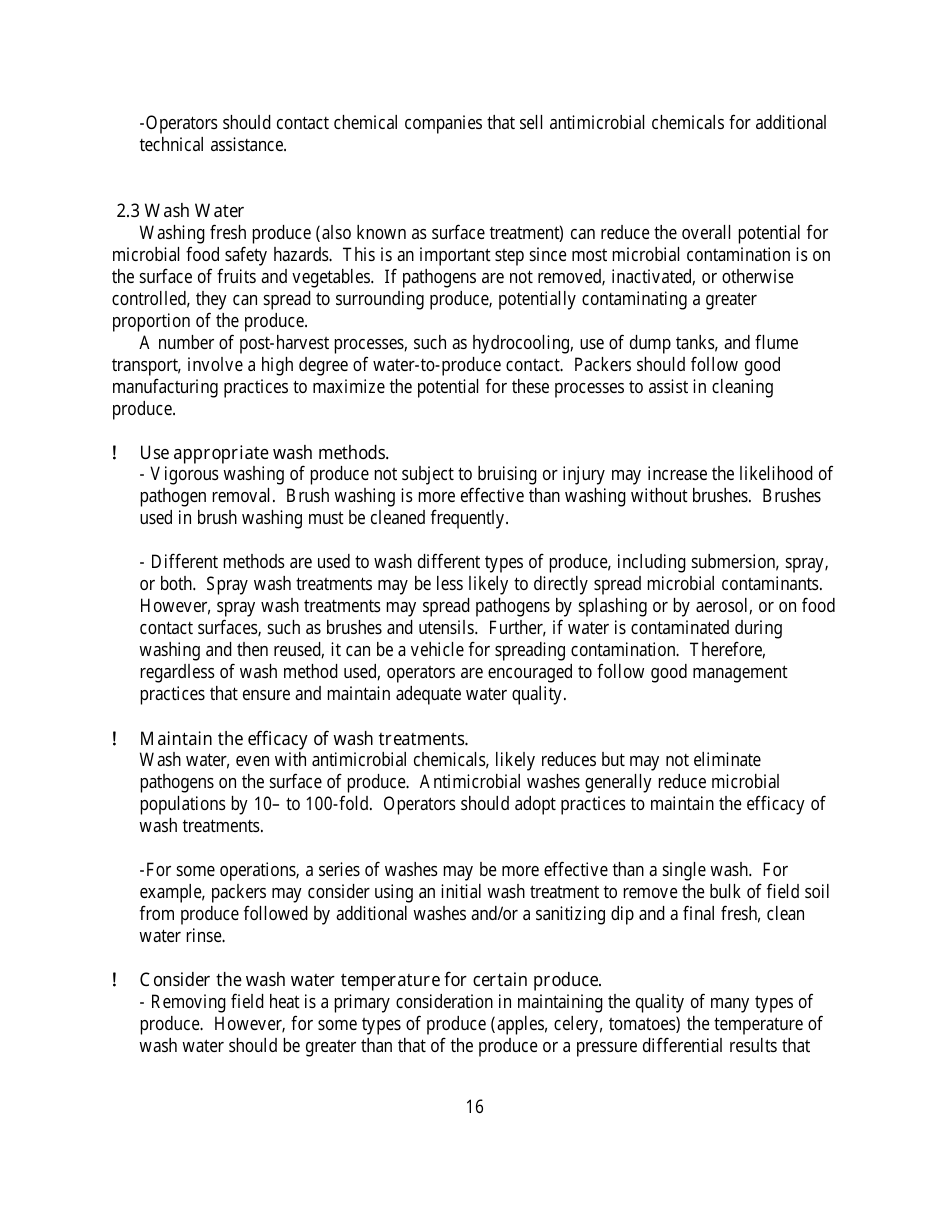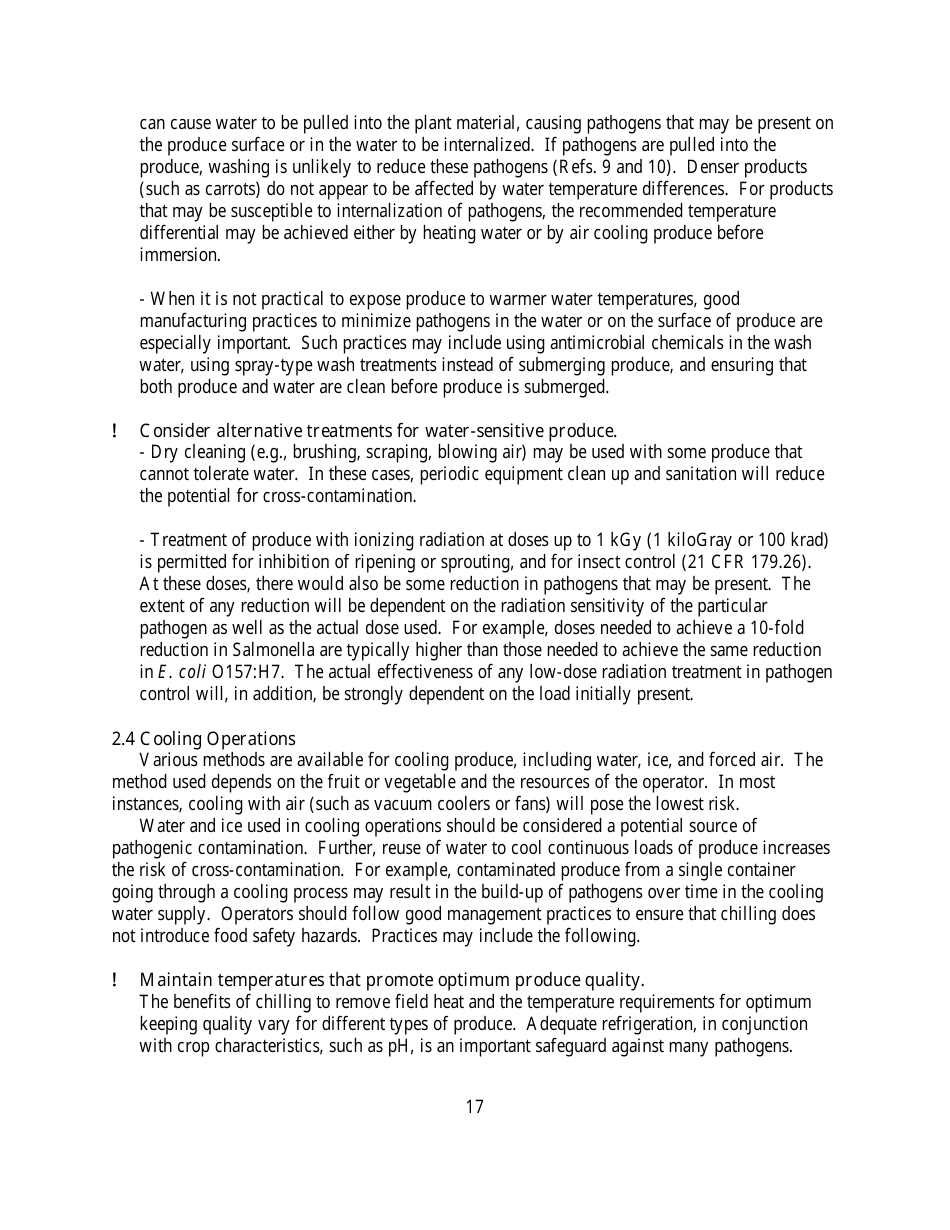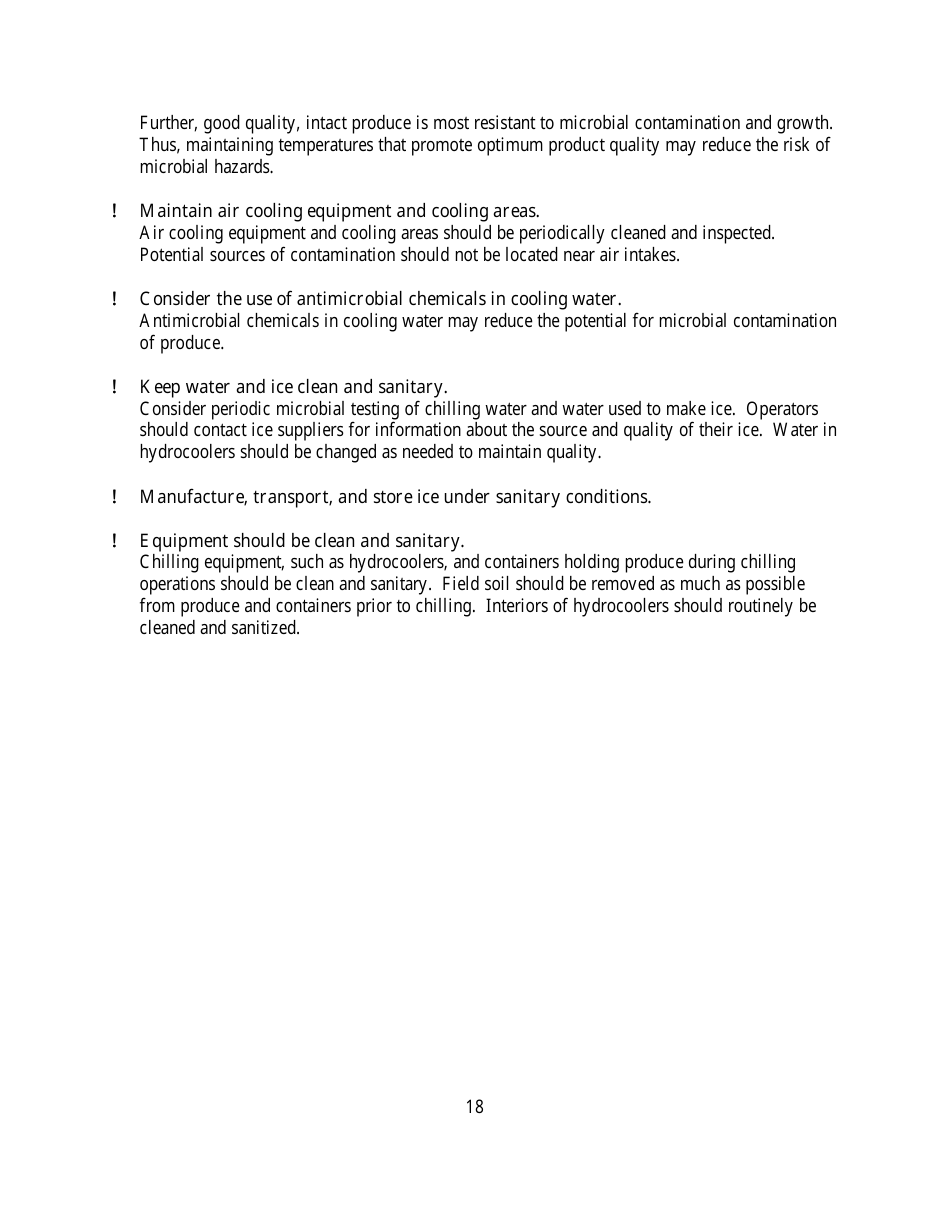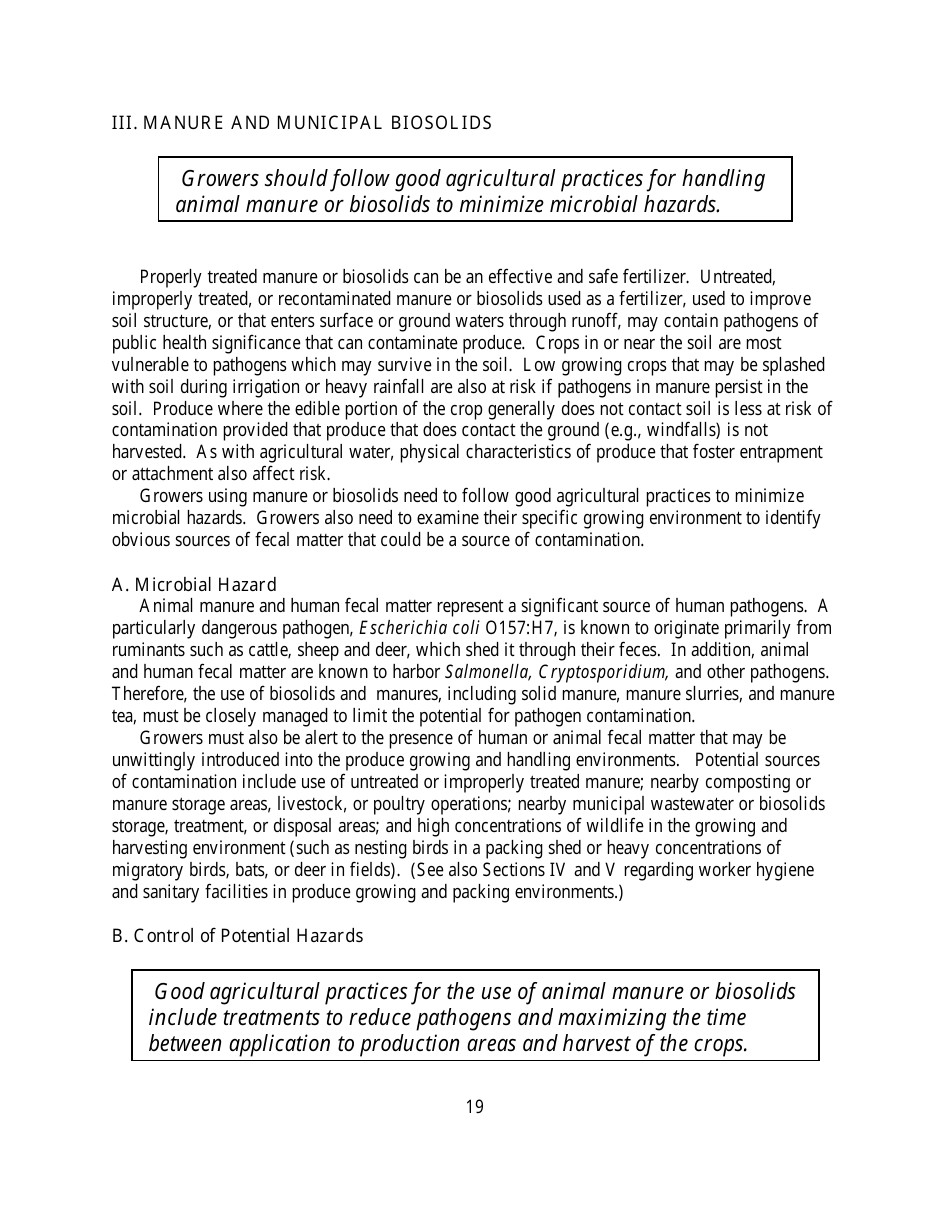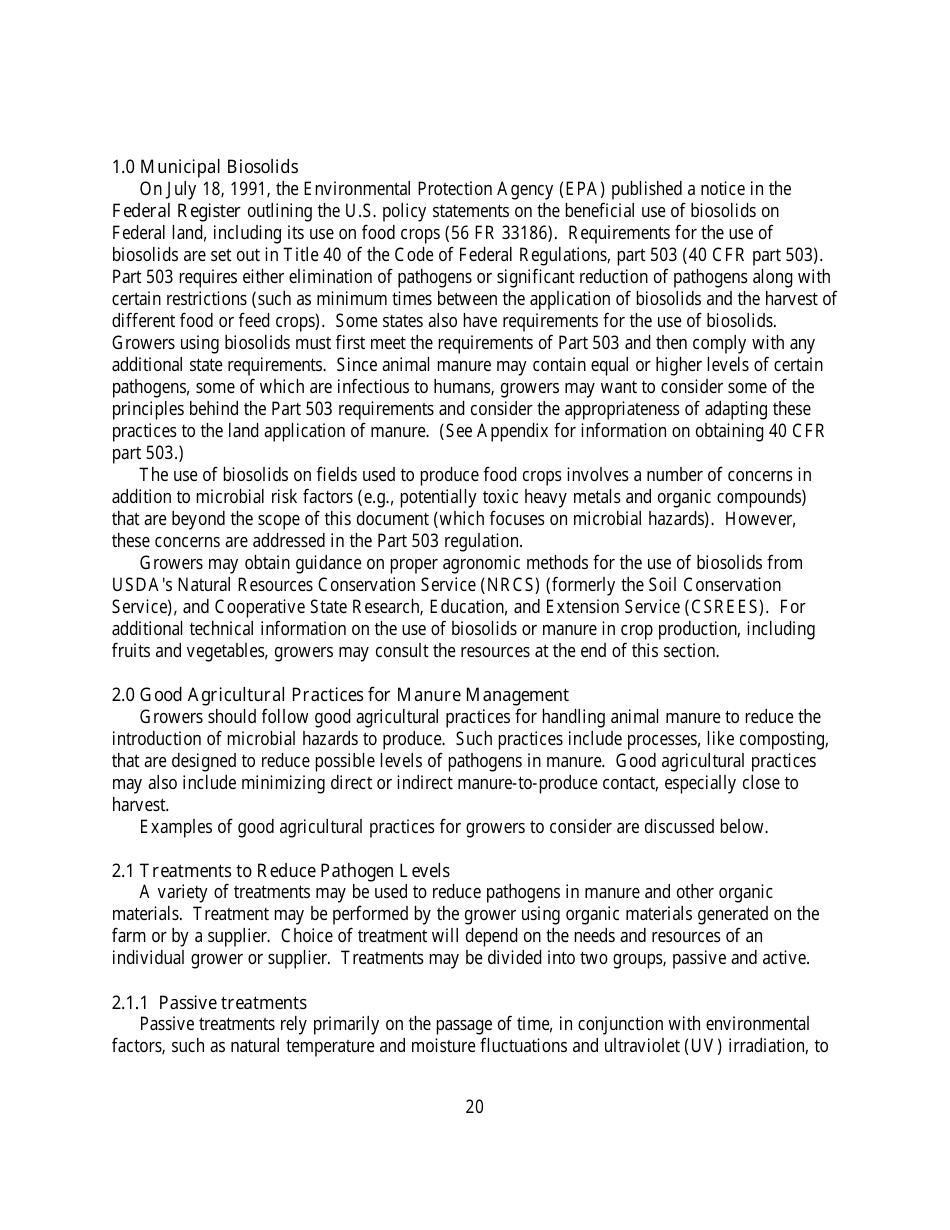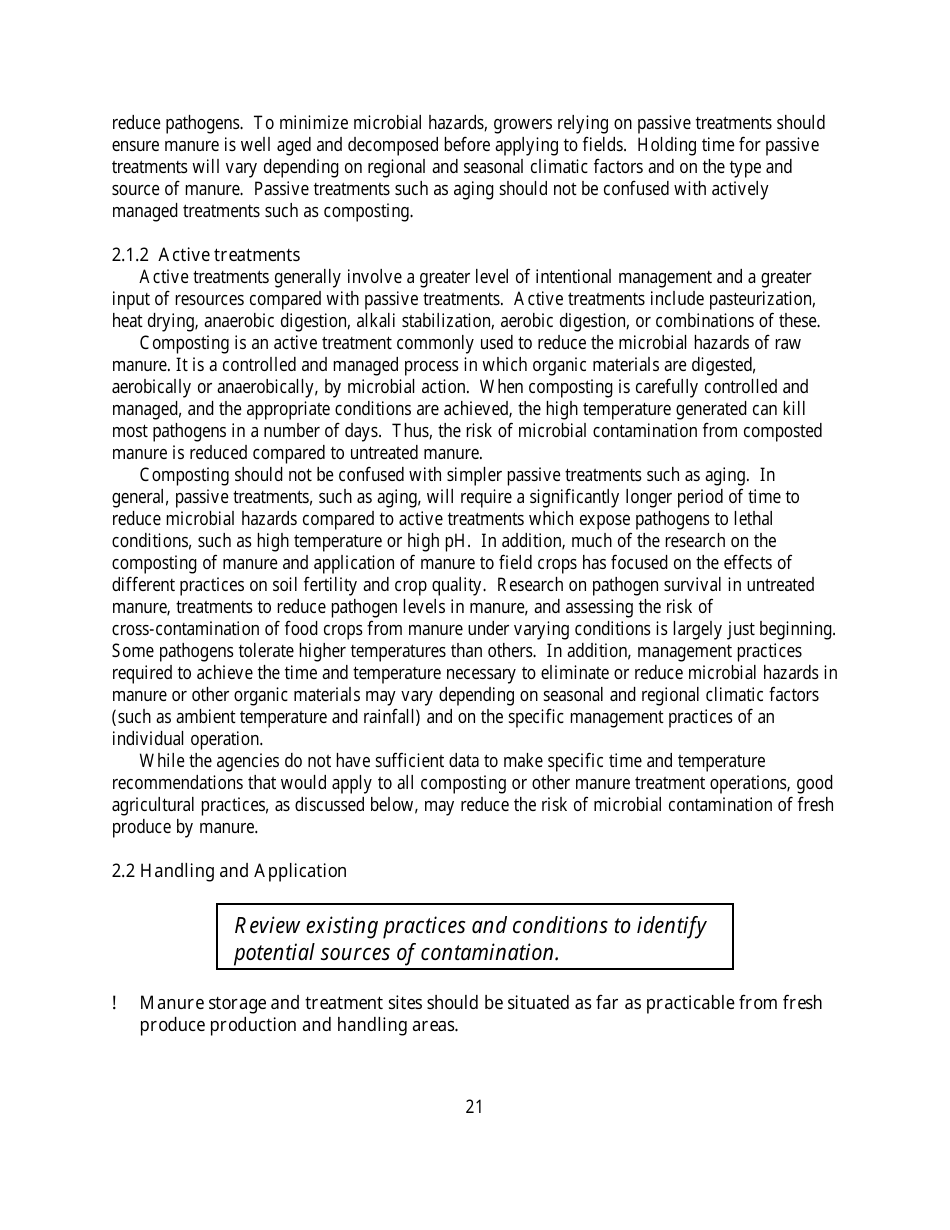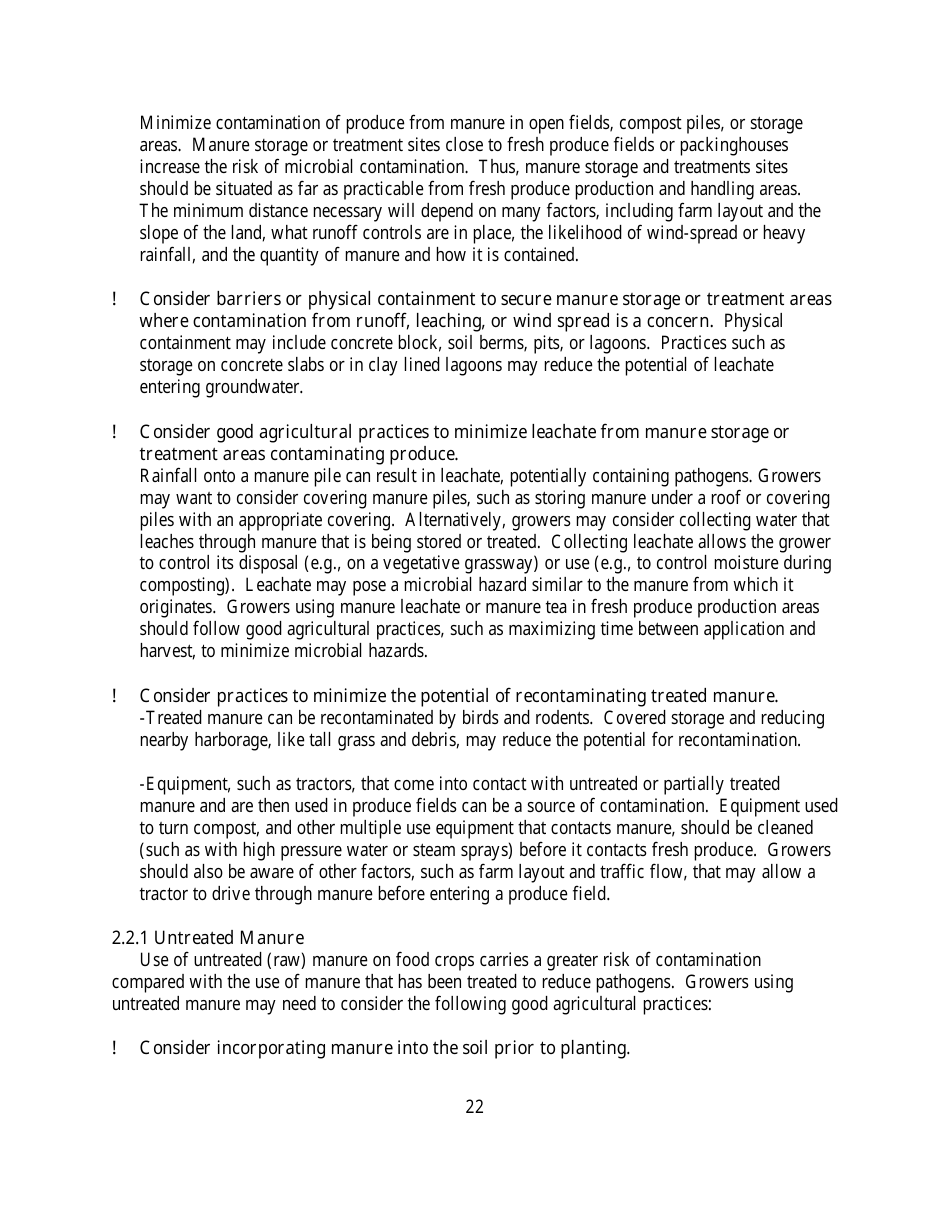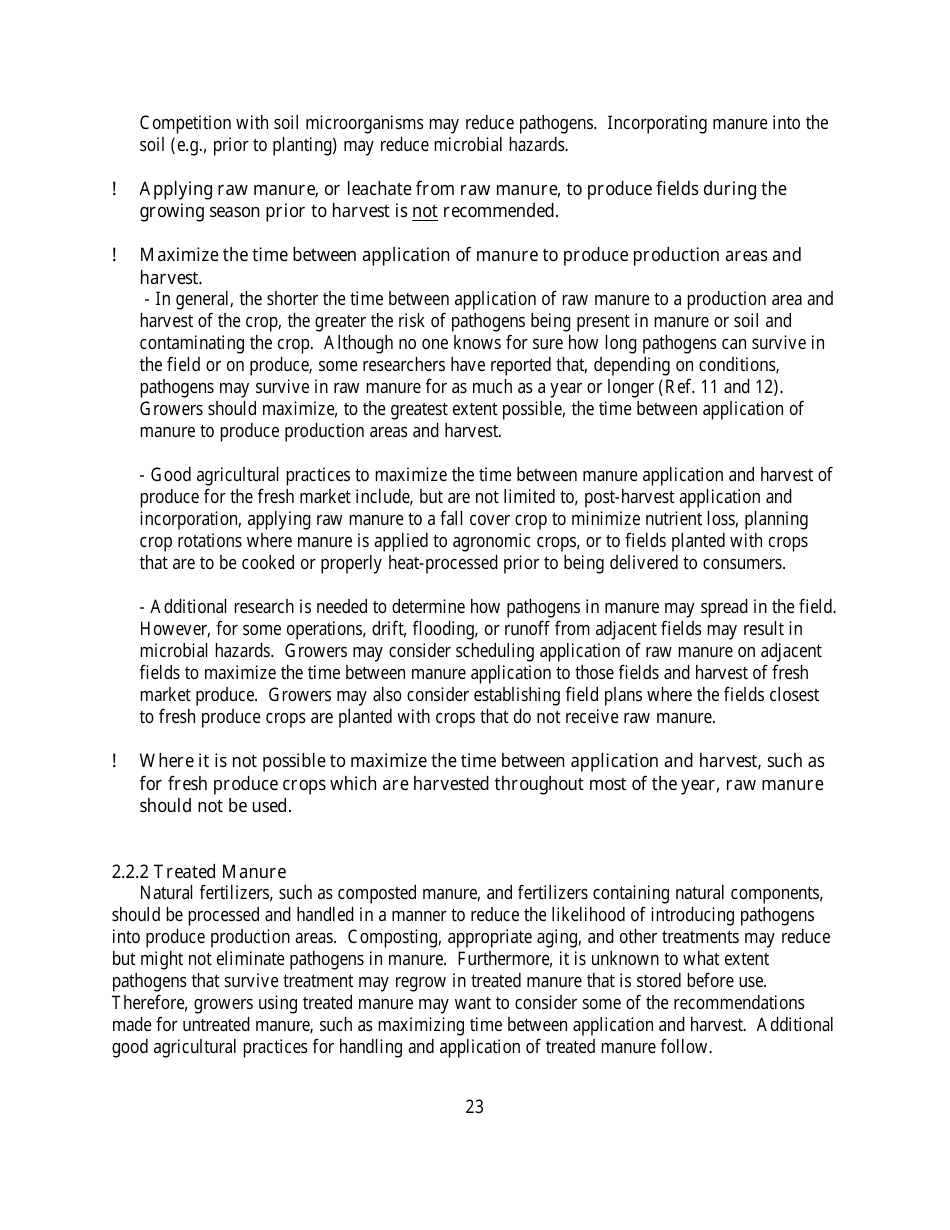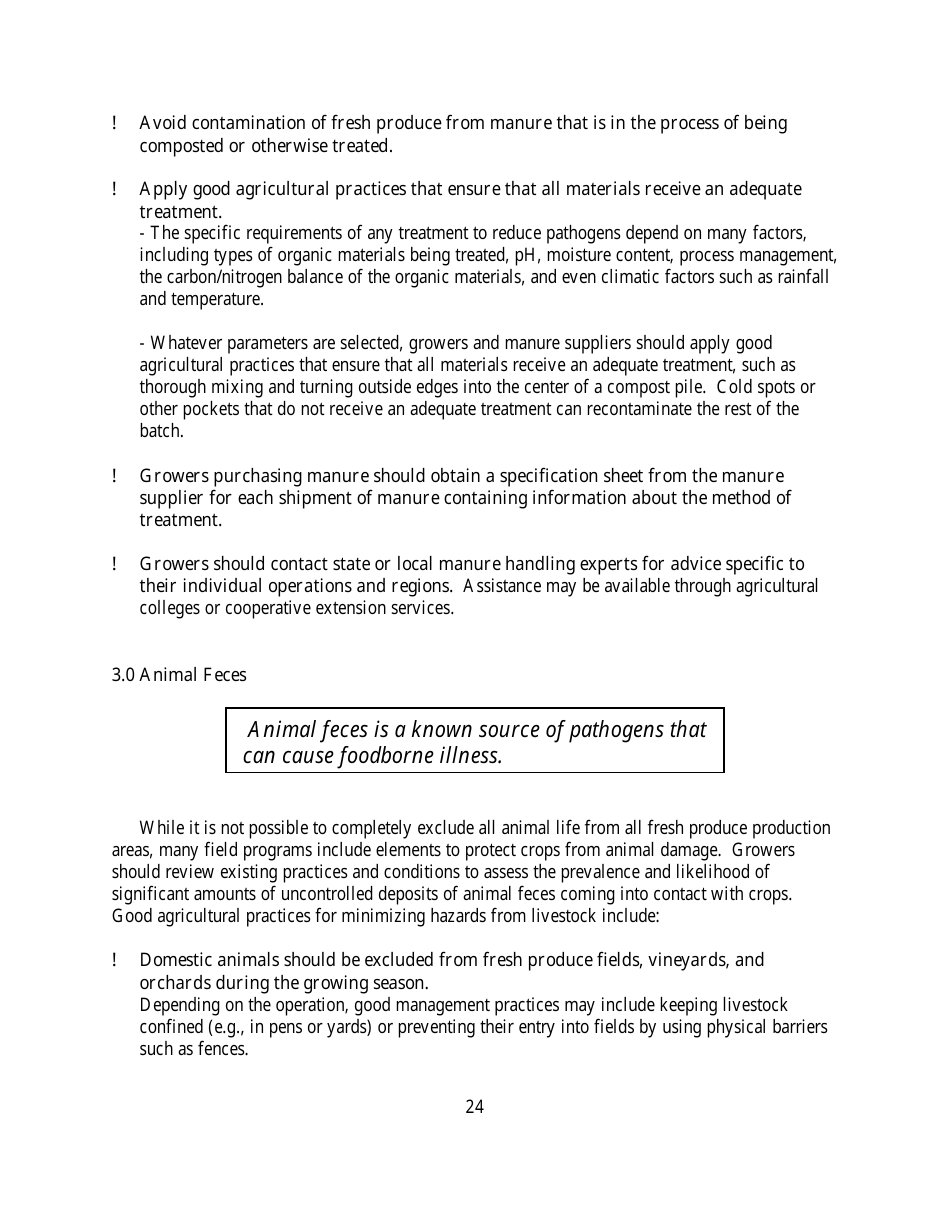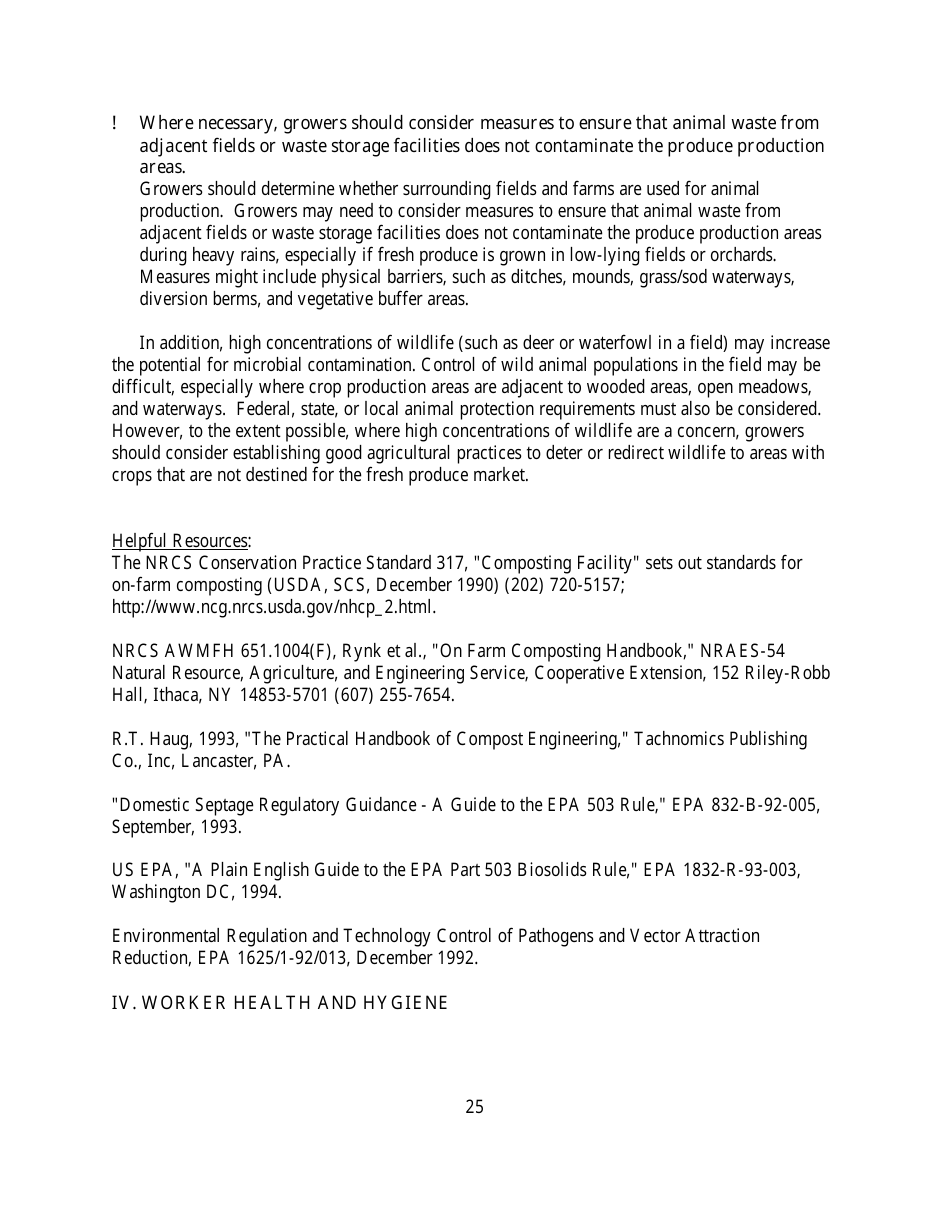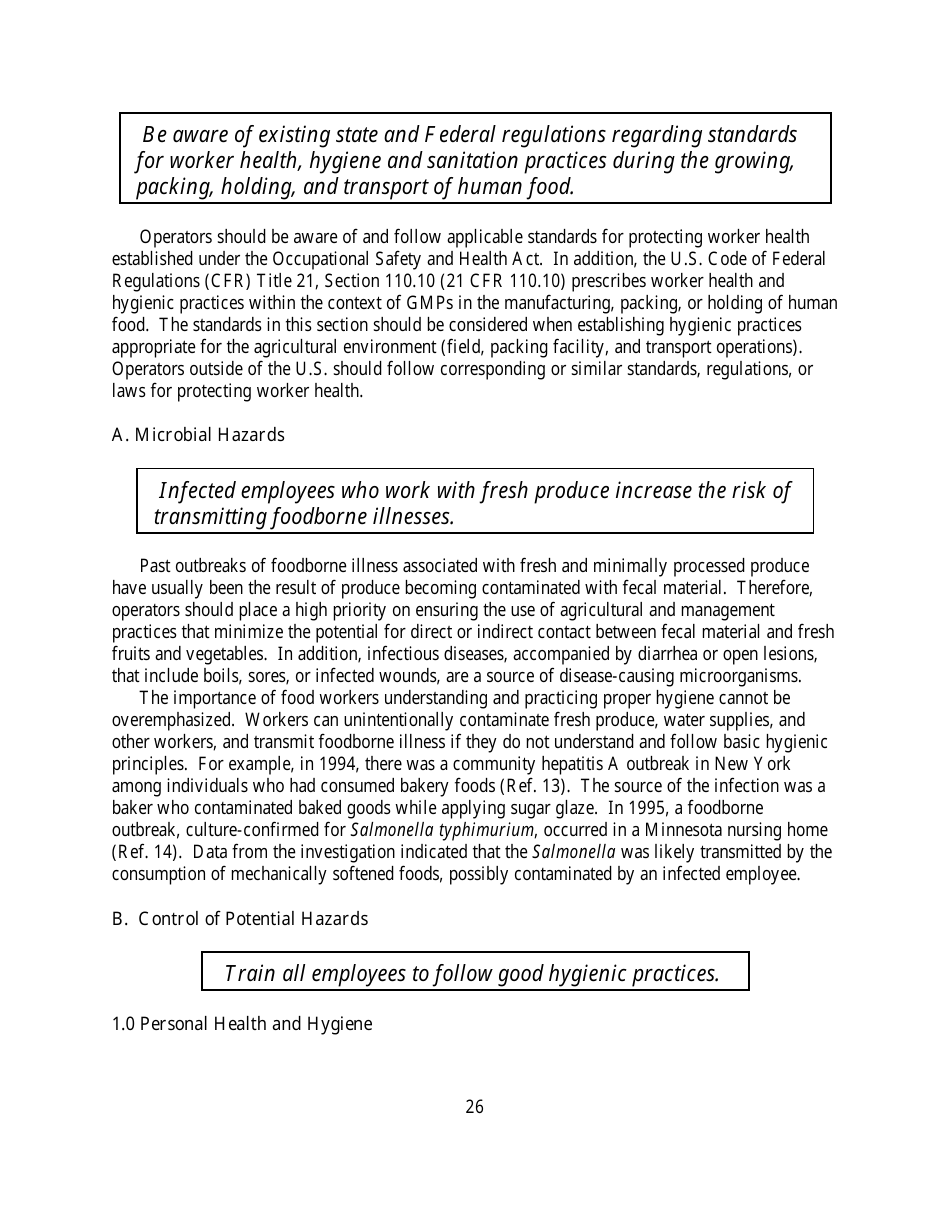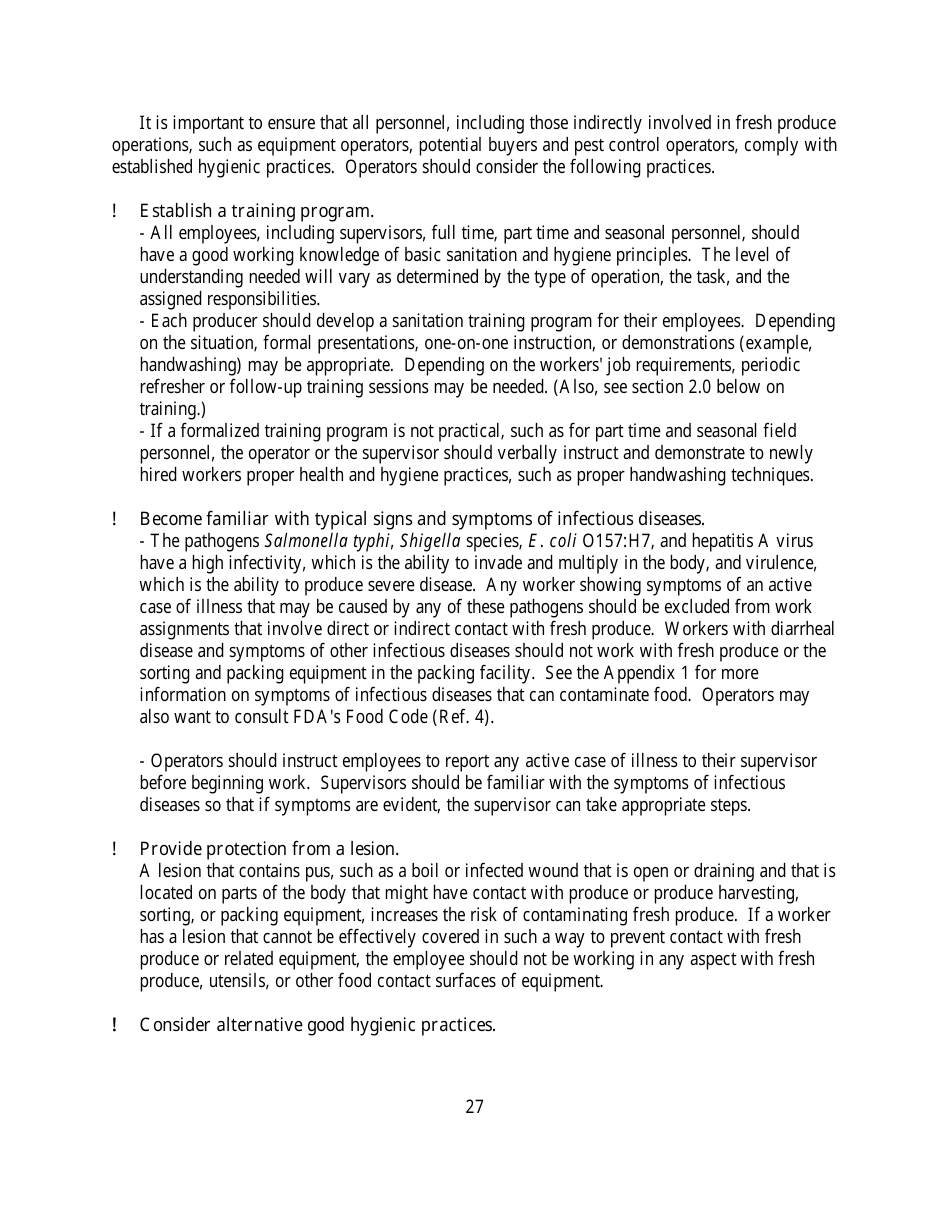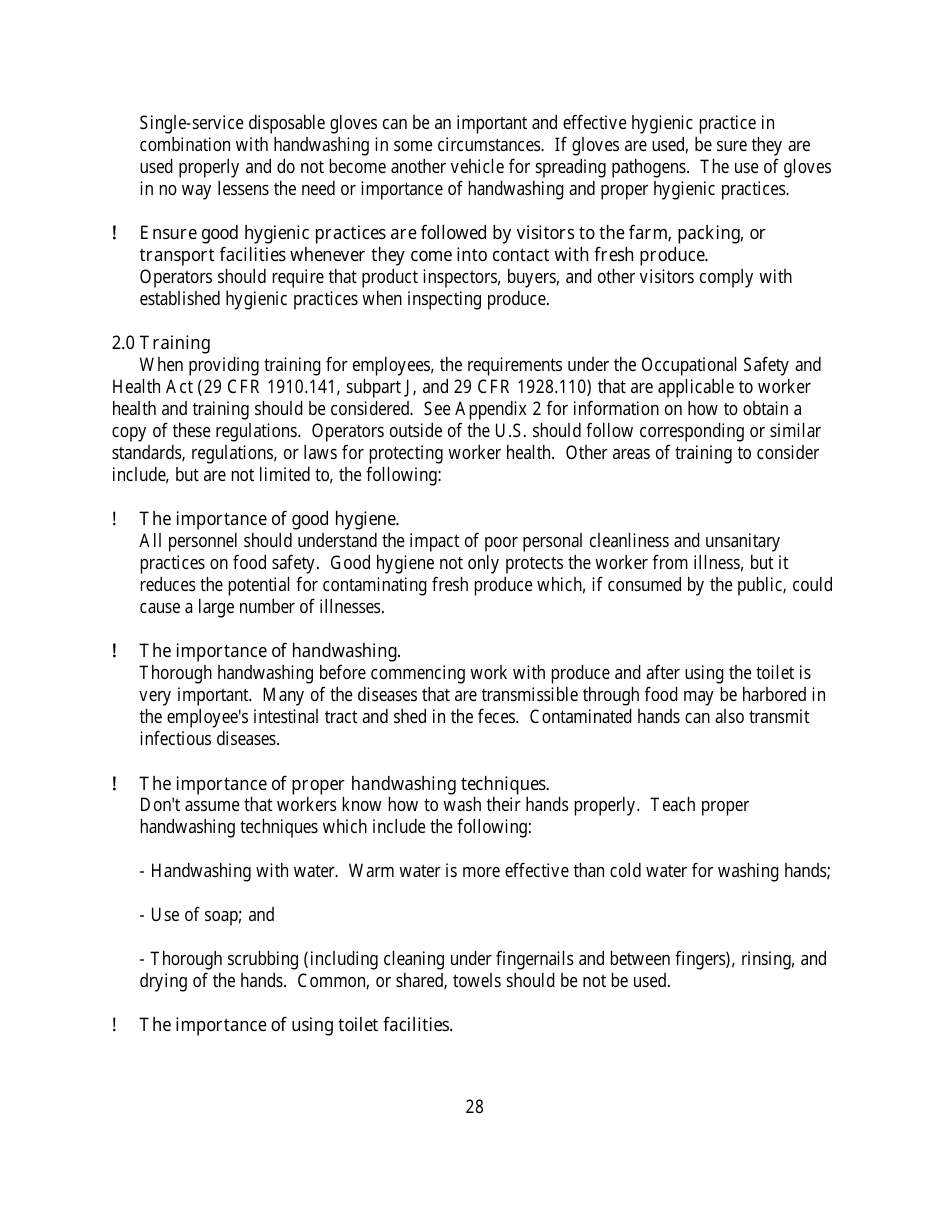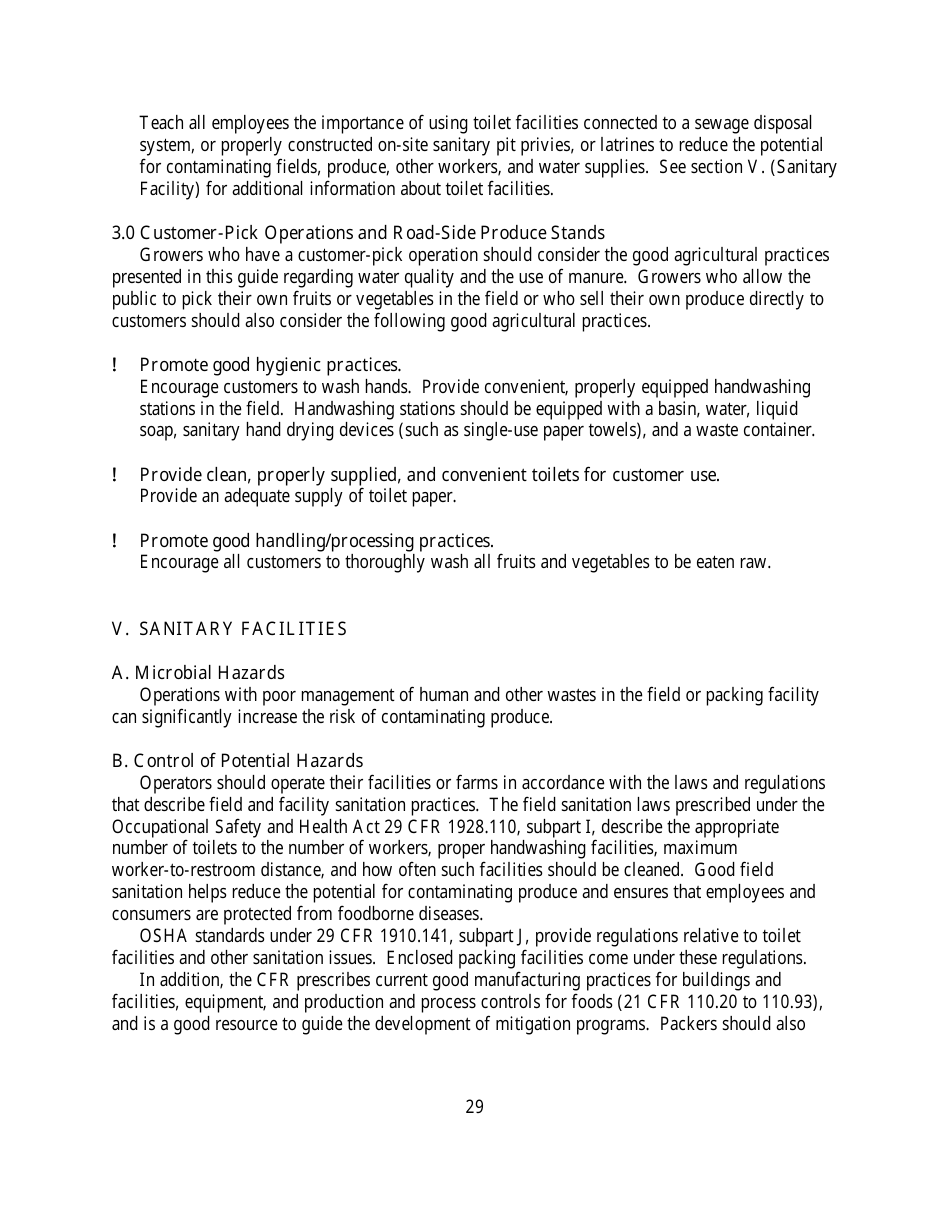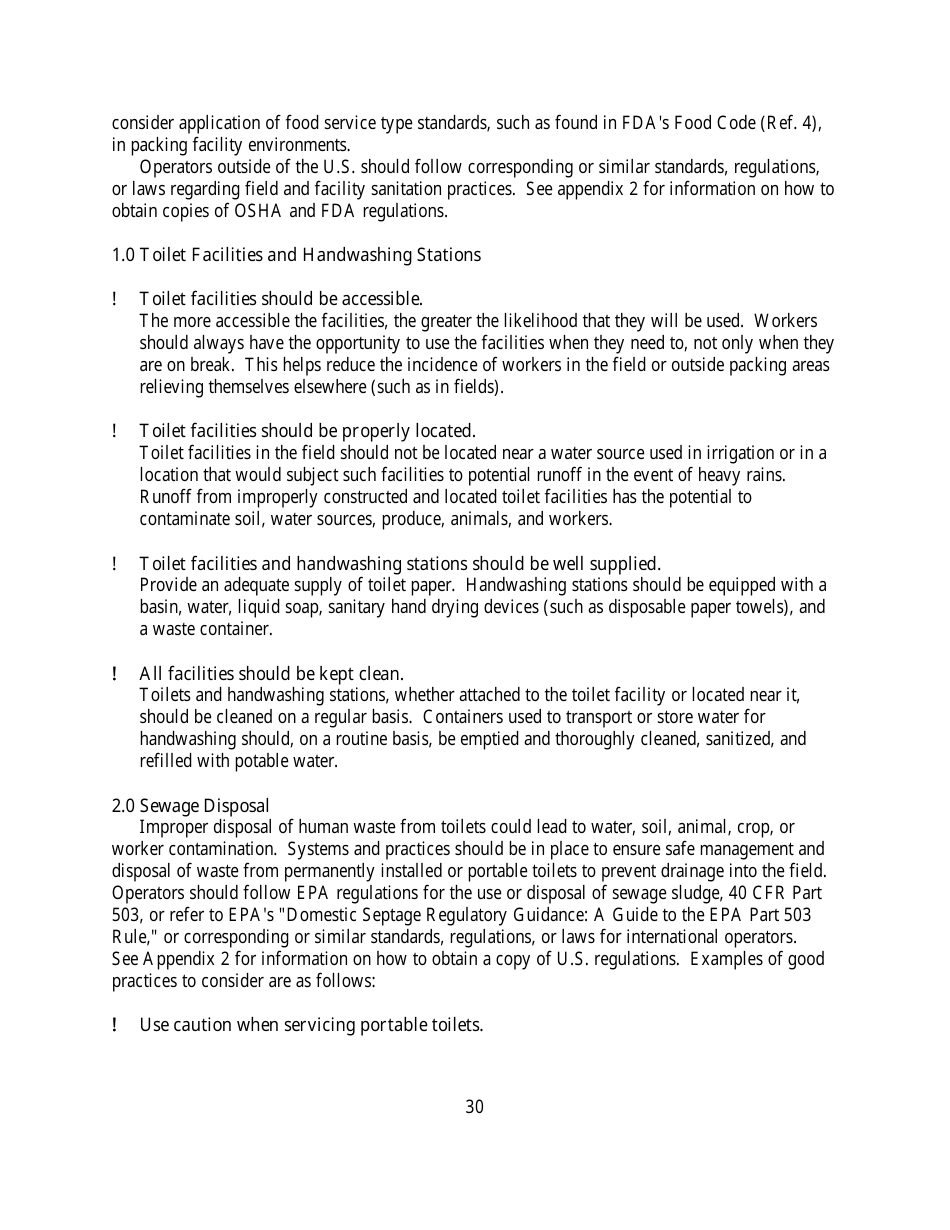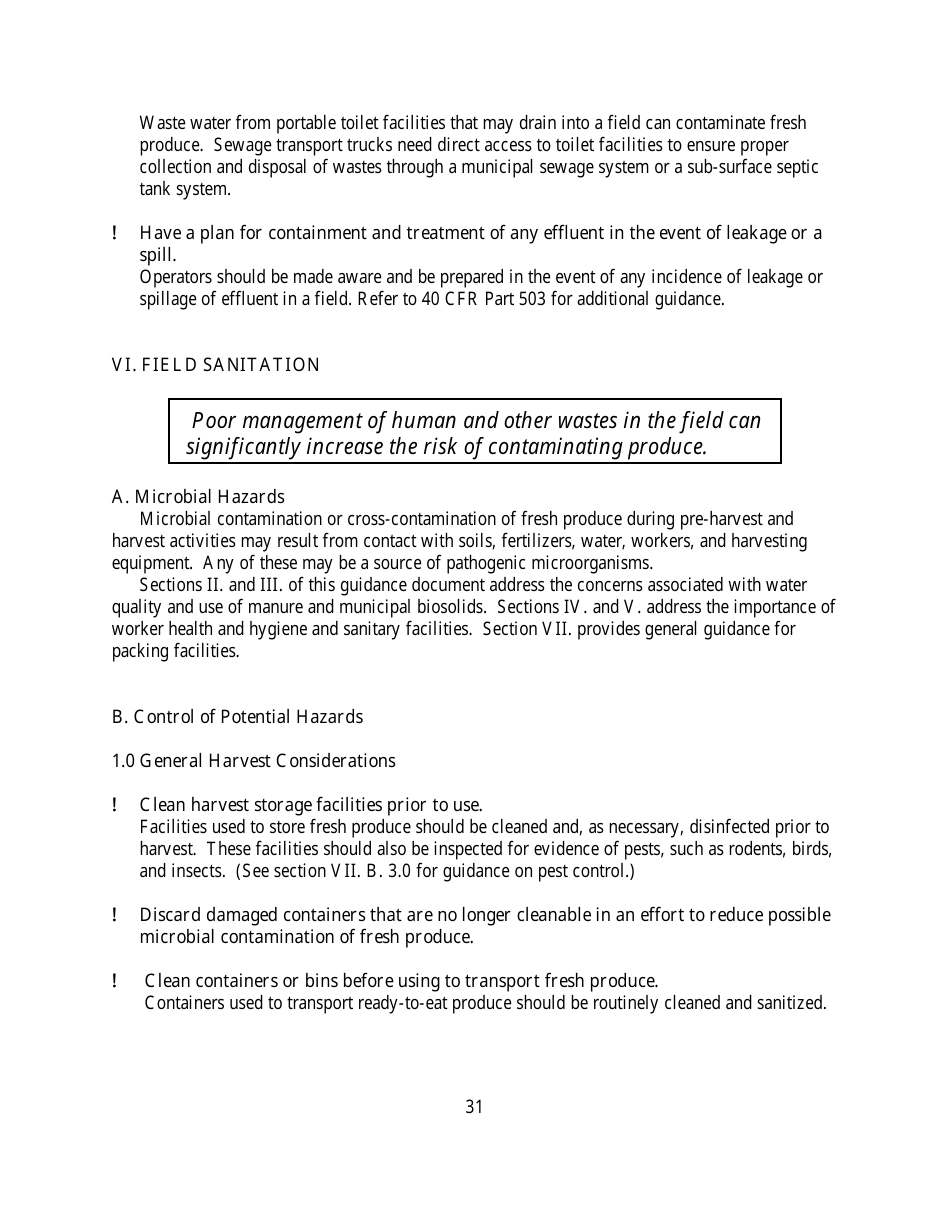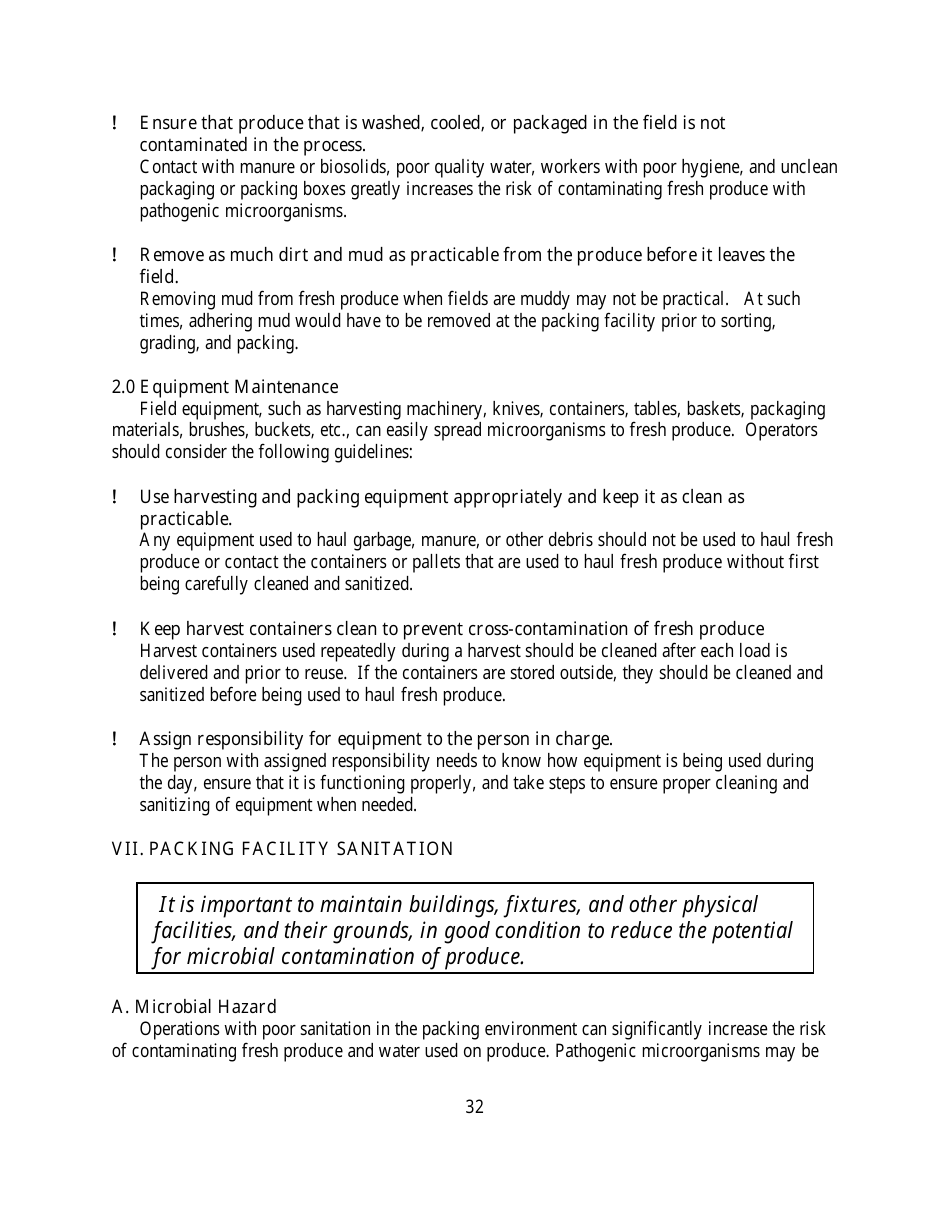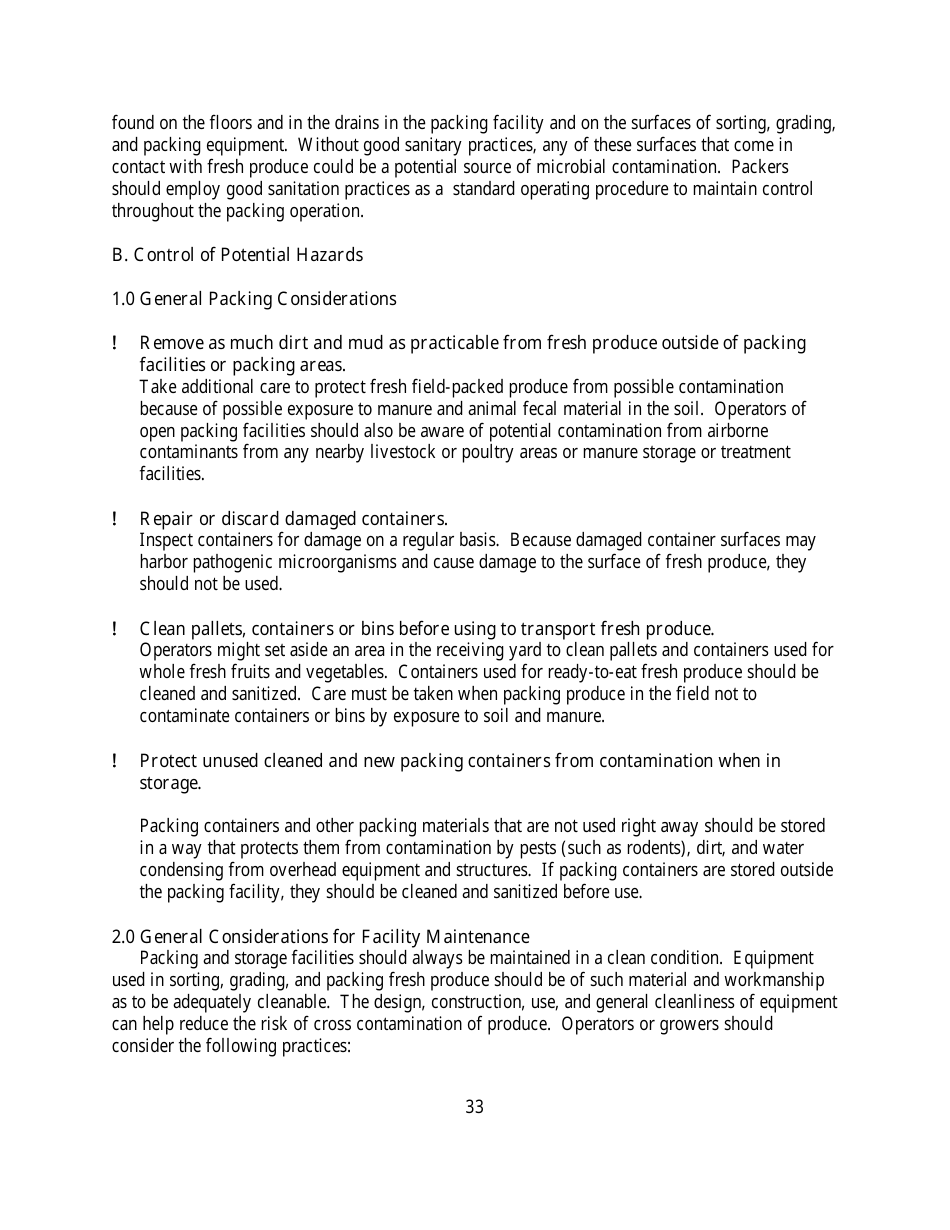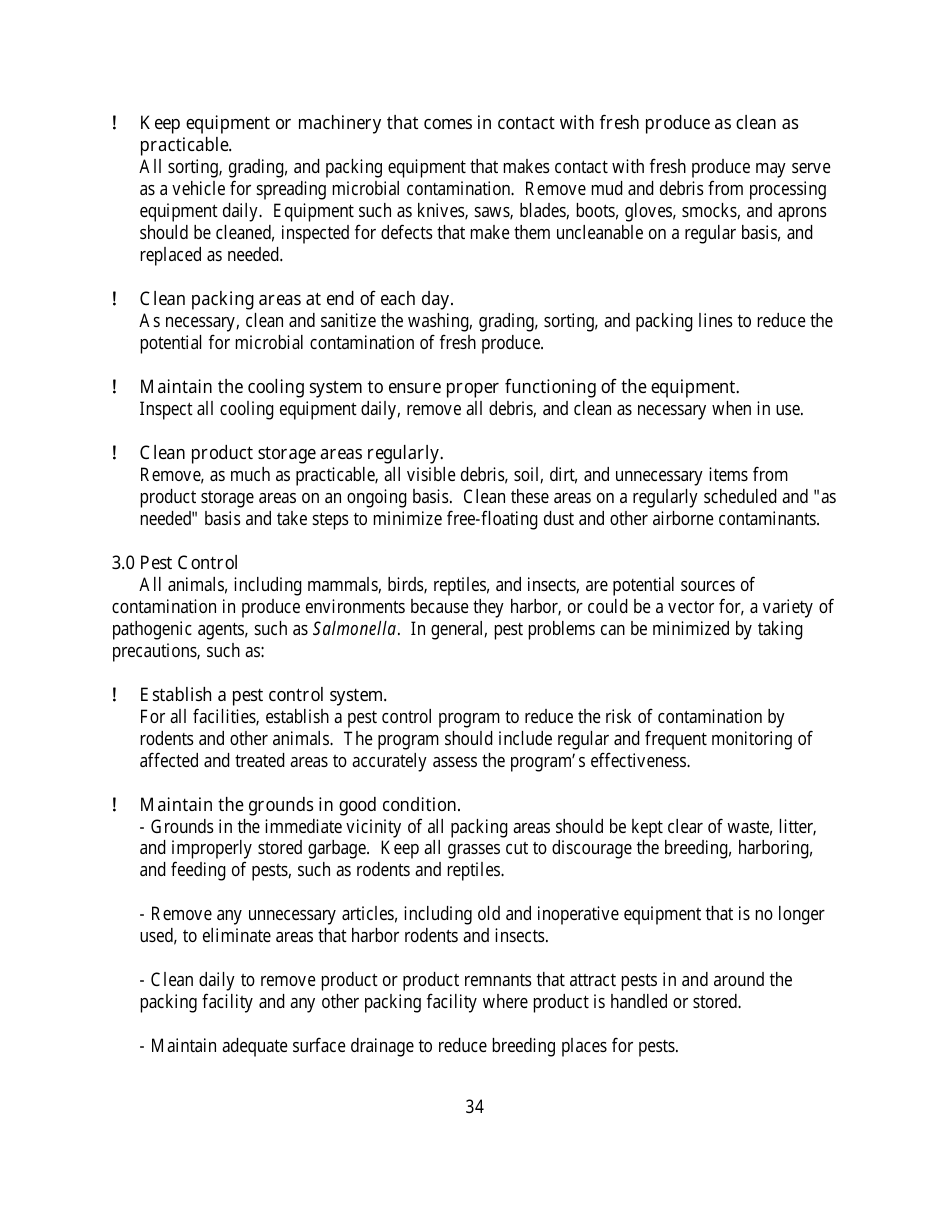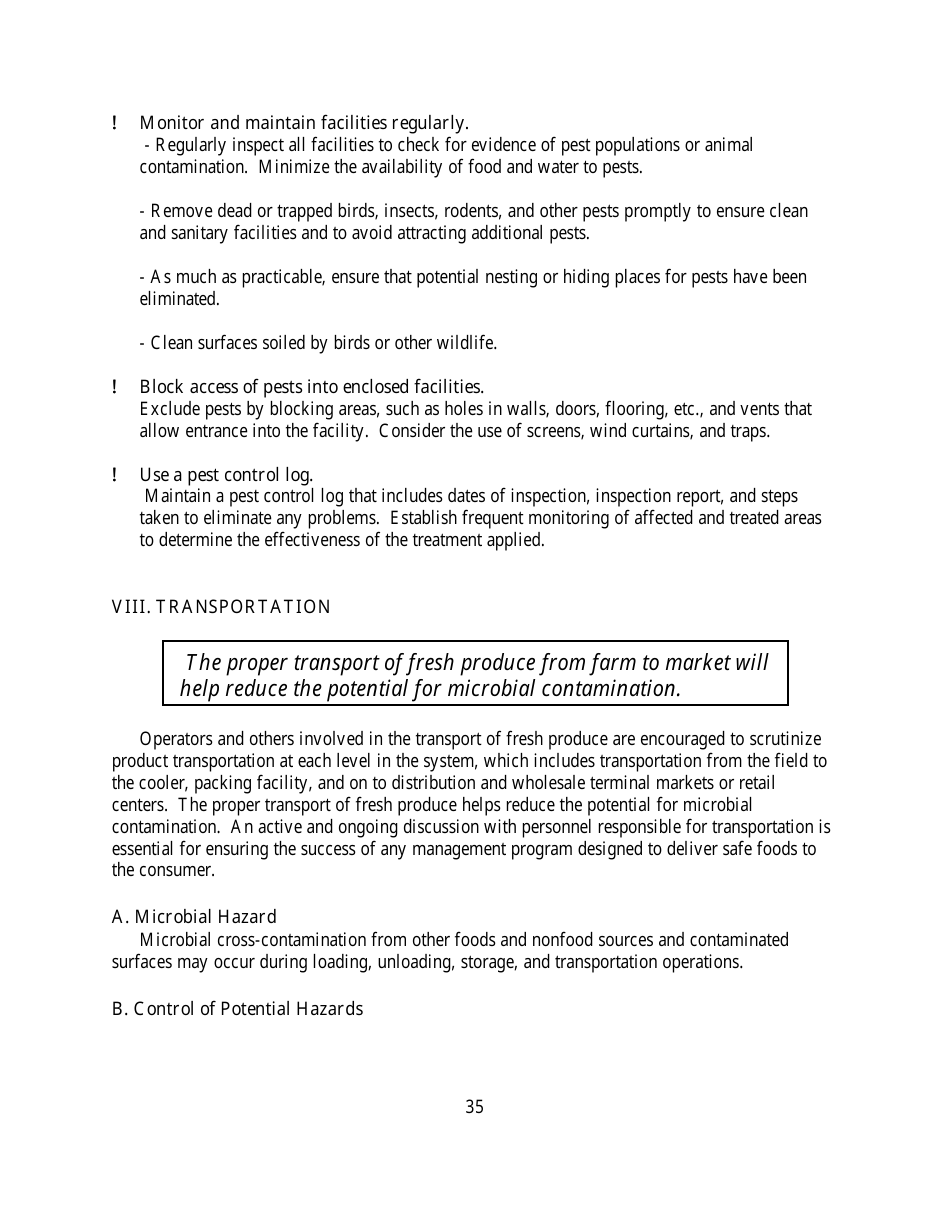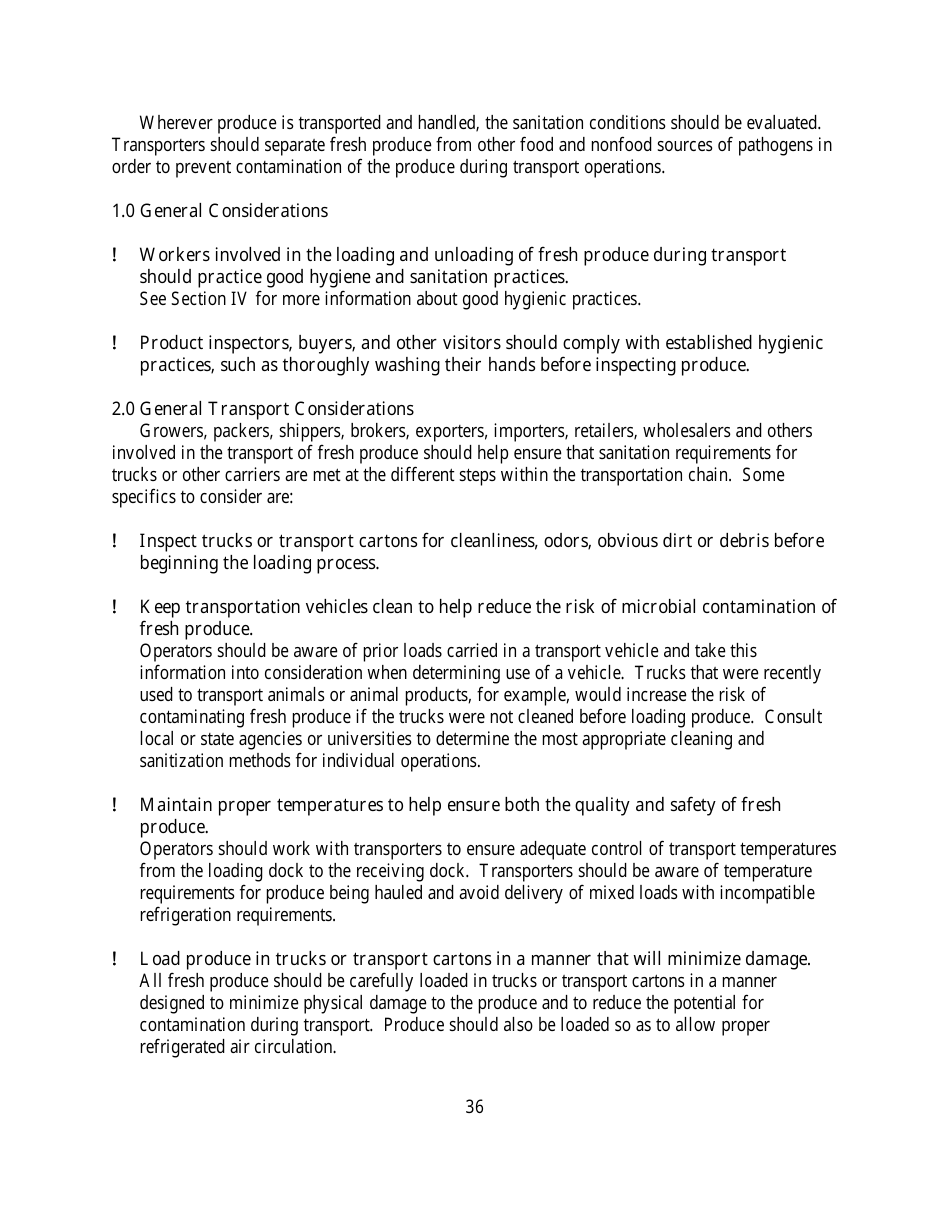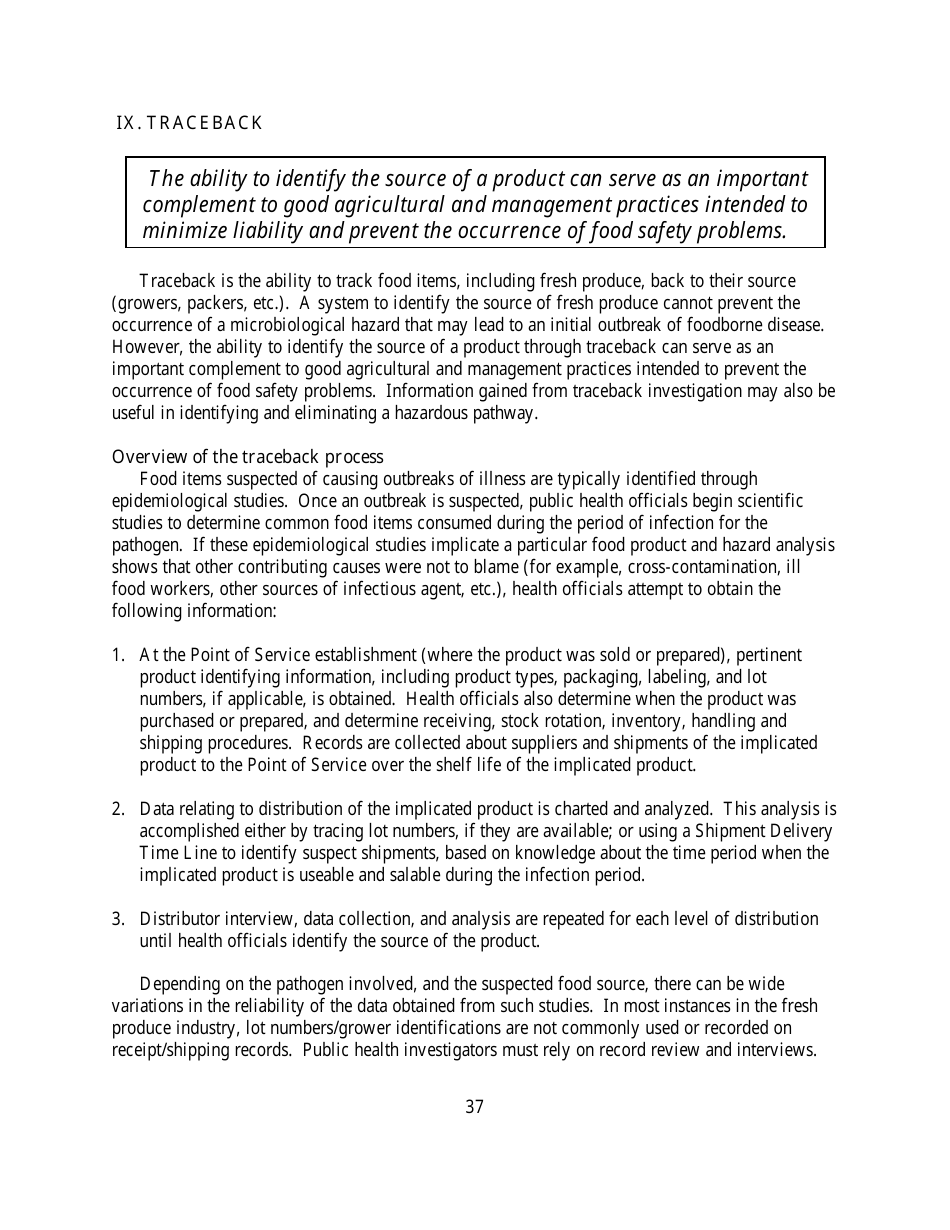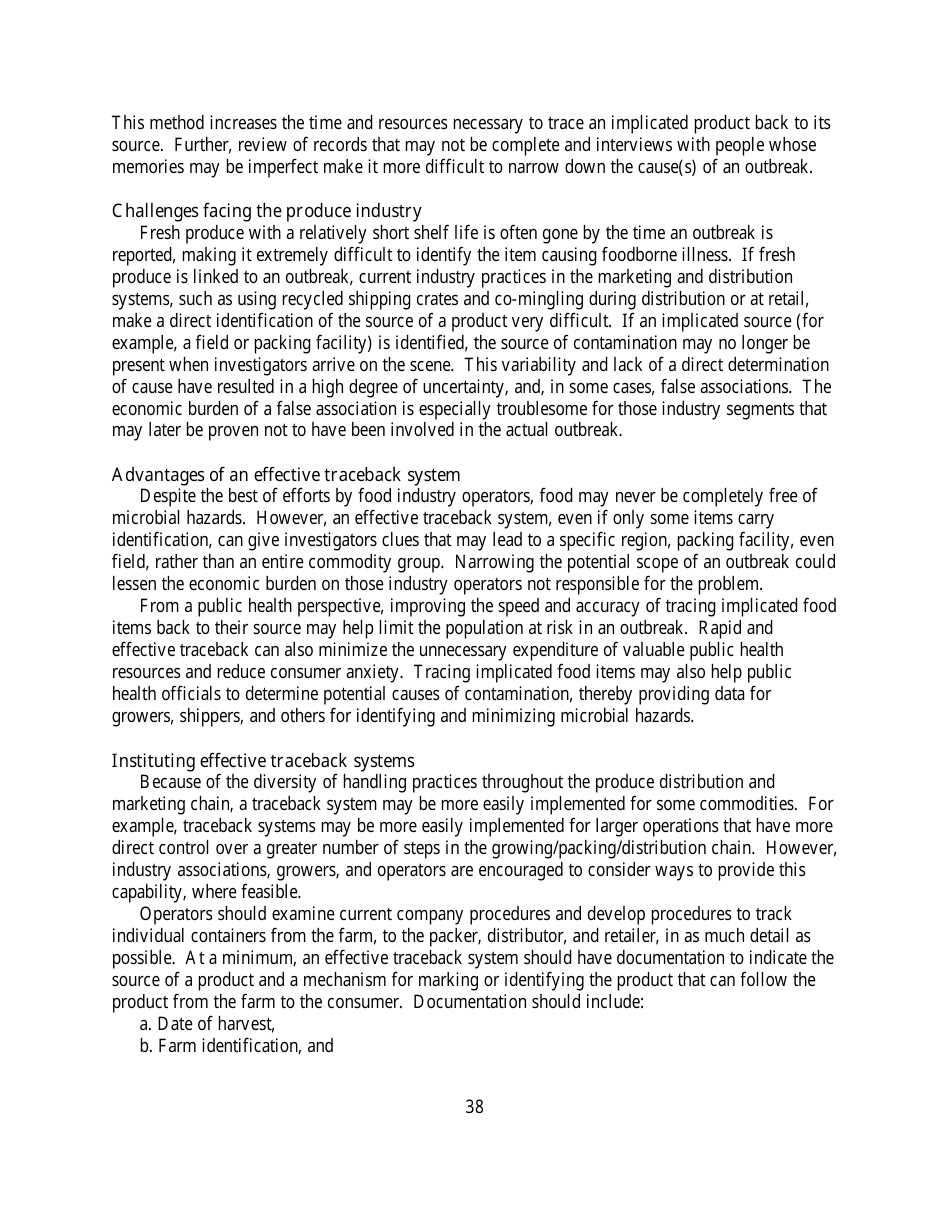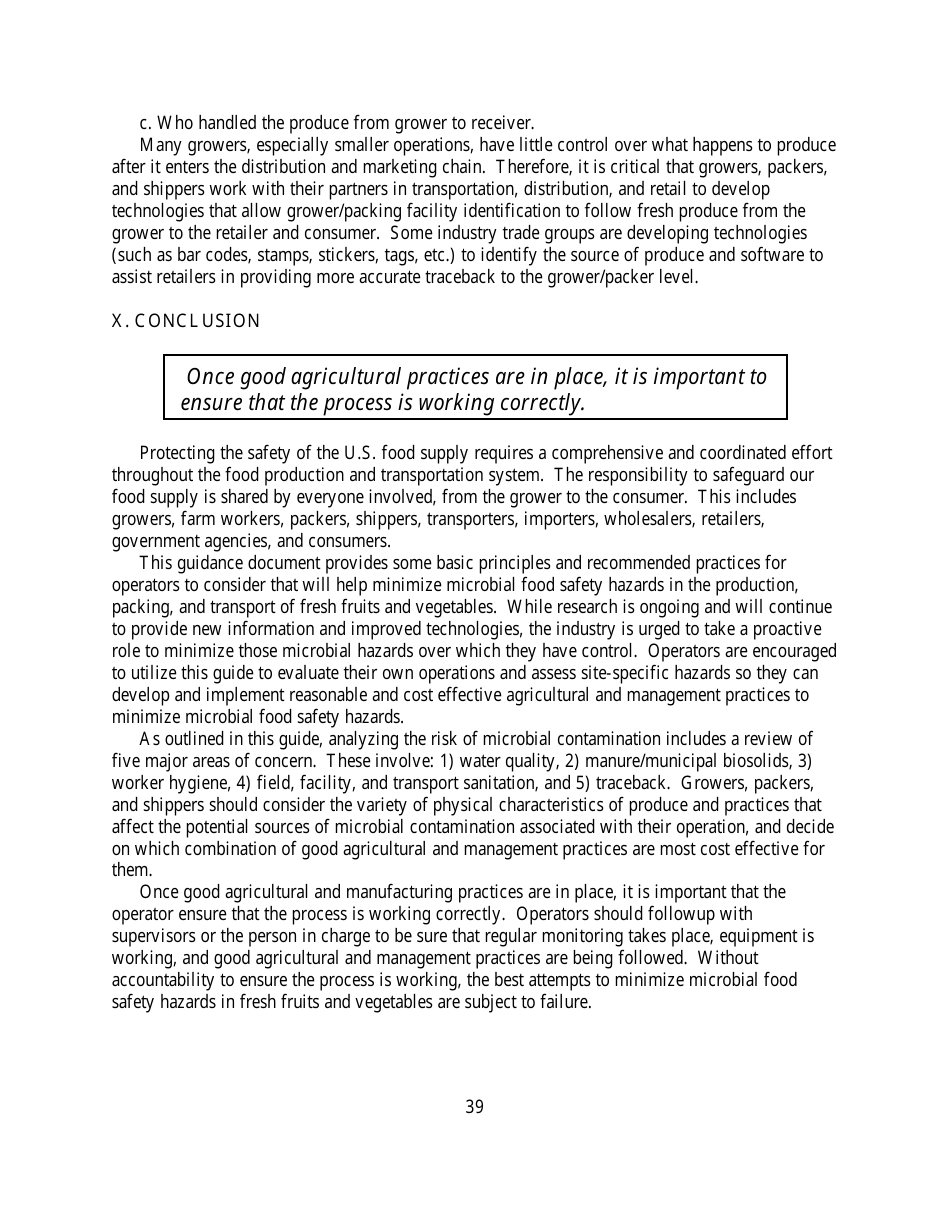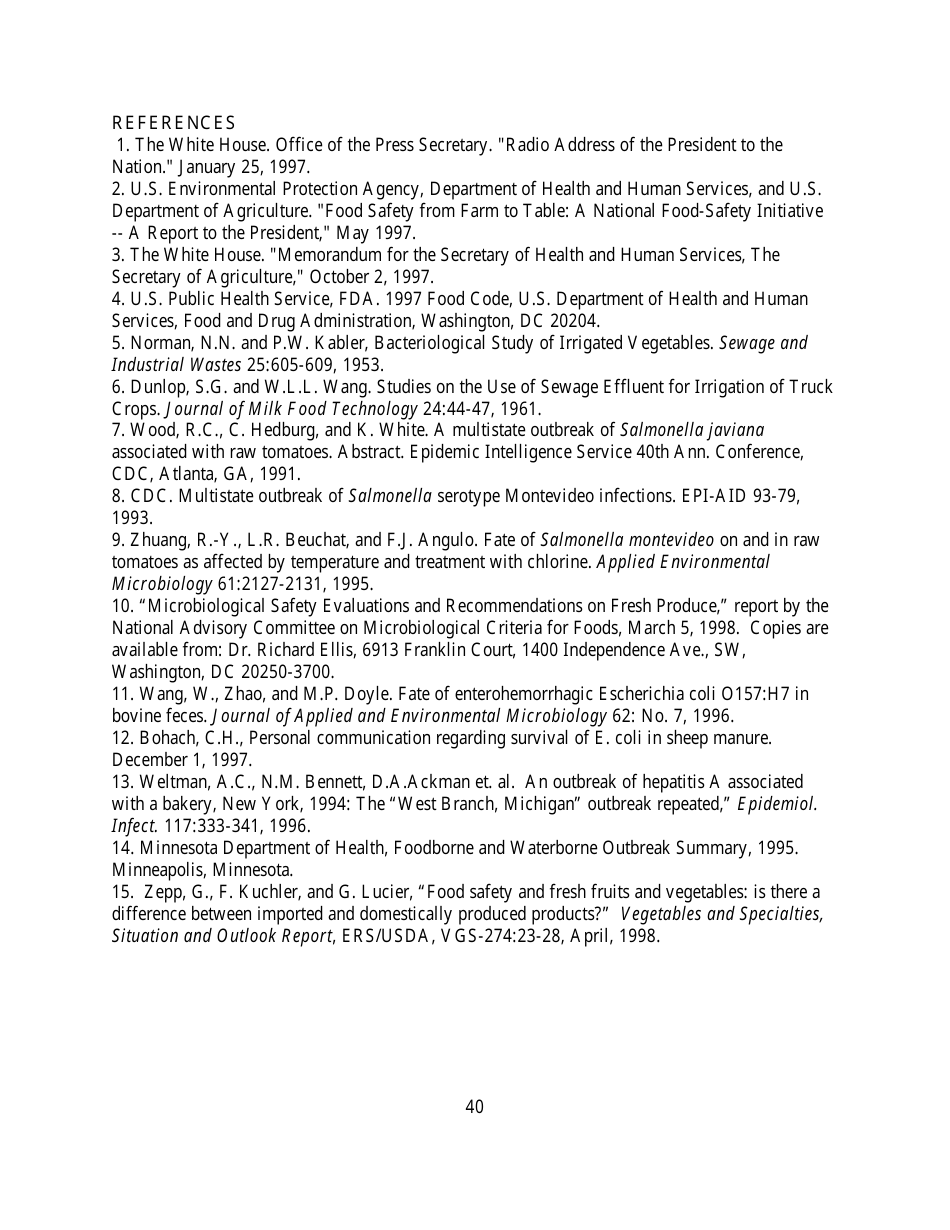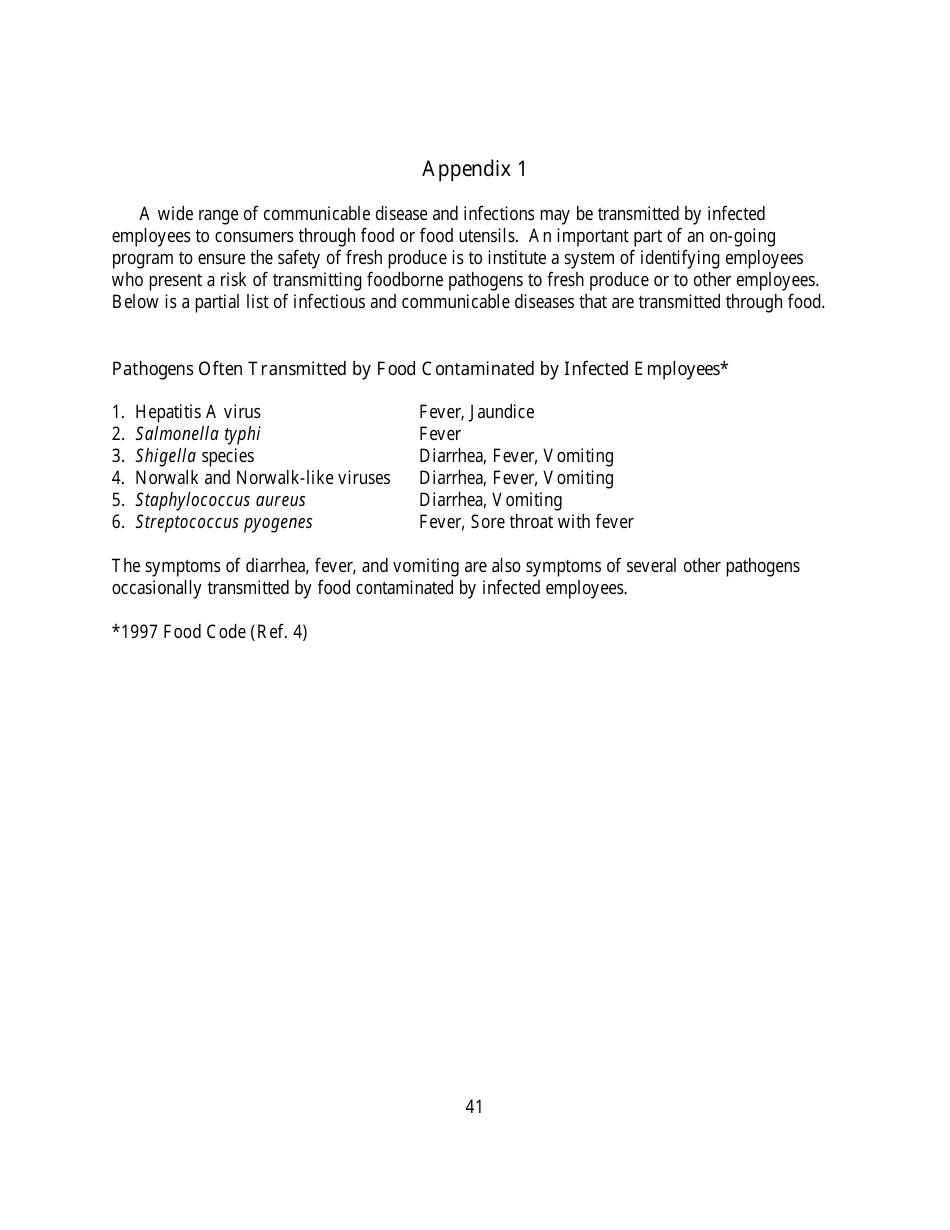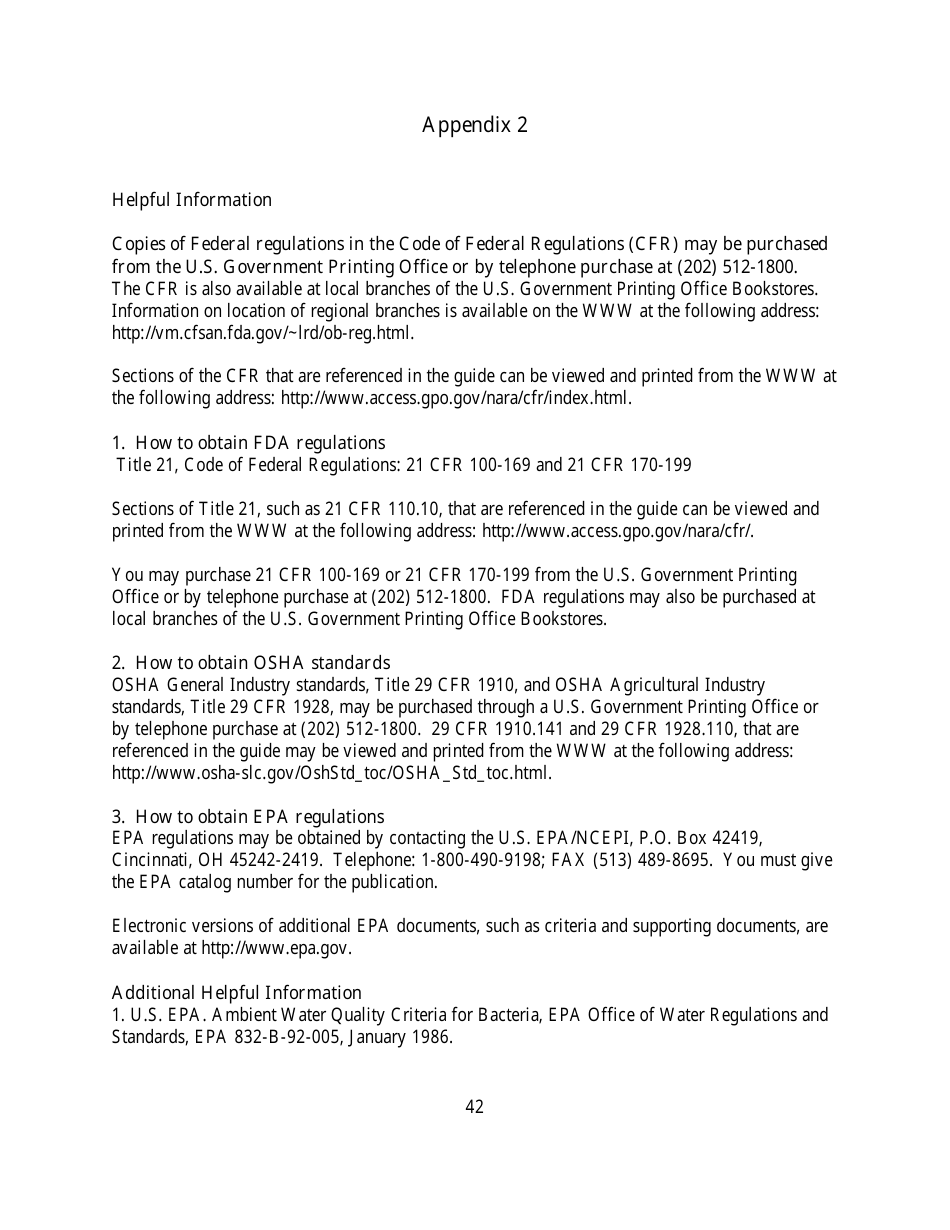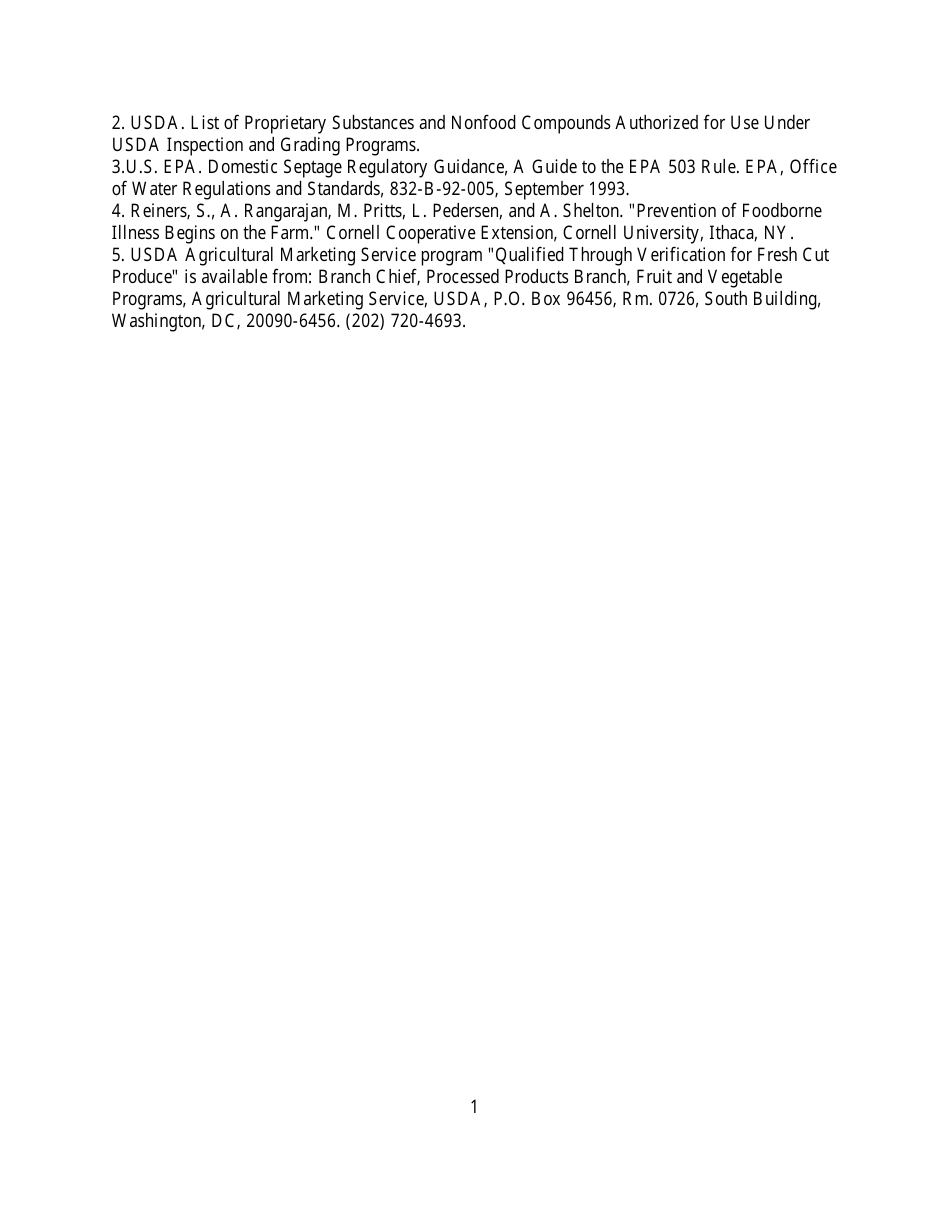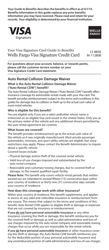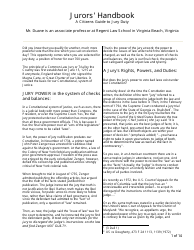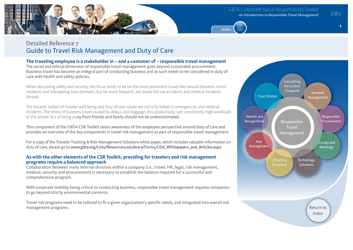Guide to Minimize Microbial Food Safety Hazards for Fresh Fruits and Vegetables
Guide to Minimize Microbial Fresh Fruits and Vegetables is a 49-page legal document that was released by the U.S. Department of Health and Human Services - U.S. Food and Drug Administration on October 1, 1998 and used nation-wide.
FAQ
Q: Why is minimizing microbial food safety hazards important for fresh fruits and vegetables?
A: Minimizing microbial food safety hazards is important for fresh fruits and vegetables to prevent foodborne illnesses.
Q: What are microbial food safety hazards?
A: Microbial food safety hazards are microorganisms such as bacteria, viruses, and fungi that can contaminate fresh fruits and vegetables, posing a risk to human health.
Q: How can I minimize microbial food safety hazards for fresh fruits and vegetables?
A: You can minimize microbial food safety hazards for fresh fruits and vegetables by washing them thoroughly, practicing good hygiene, using safe water for irrigation, and maintaining proper storage temperatures.
Q: Why should I wash fresh fruits and vegetables before consuming them?
A: Washing fresh fruits and vegetables helps remove dirt, bacteria, and other contaminants that may be present on their surfaces.
Q: What is good hygiene when handling fresh fruits and vegetables?
A: Good hygiene when handling fresh fruits and vegetables includes washing your hands thoroughly with soap and water before and after handling them, using clean utensils and cutting boards, and avoiding cross-contamination with raw meat, poultry, and seafood.
Q: Is it safe to use tap water for washing fresh fruits and vegetables?
A: It is generally safe to use tap water for washing fresh fruits and vegetables, but if you are concerned about the quality of your tap water, you can use bottled or boiled water instead.
Q: What are the proper storage temperatures for fresh fruits and vegetables?
A: The proper storage temperatures for fresh fruits and vegetables vary depending on the specific type of produce, but generally, they should be stored at temperatures below 41°F (5°C) to slow down microbial growth.
Q: Can I reduce microbial food safety hazards by cooking fresh fruits and vegetables?
A: Cooking fresh fruits and vegetables can help reduce microbial food safety hazards, as heat kills most microorganisms. However, some fruits and vegetables are commonly consumed raw, so thorough washing is still important.
Q: Are organic fruits and vegetables less prone to microbial food safety hazards?
A: Organic fruits and vegetables are not inherently less prone to microbial food safety hazards. Regardless of whether they are organic or conventional, it is important to handle and prepare them safely to minimize the risk of contamination.
Q: What should I do if I suspect that fresh fruits or vegetables are contaminated?
A: If you suspect that fresh fruits or vegetables are contaminated, it is best to discard them to avoid the risk of foodborne illness. Report the incident to the retailer or local health department for further investigation if necessary.
Form Details:
- The latest edition currently provided by the U.S. Department of Health and Human Services - U.S. Food and Drug Administration;
- Ready to use and print;
- Easy to customize;
- Compatible with most PDF-viewing applications;
- Fill out the form in our online filing application.
Download a printable version of the form by clicking the link below or browse more legal forms and templates provided by the issuing department.
